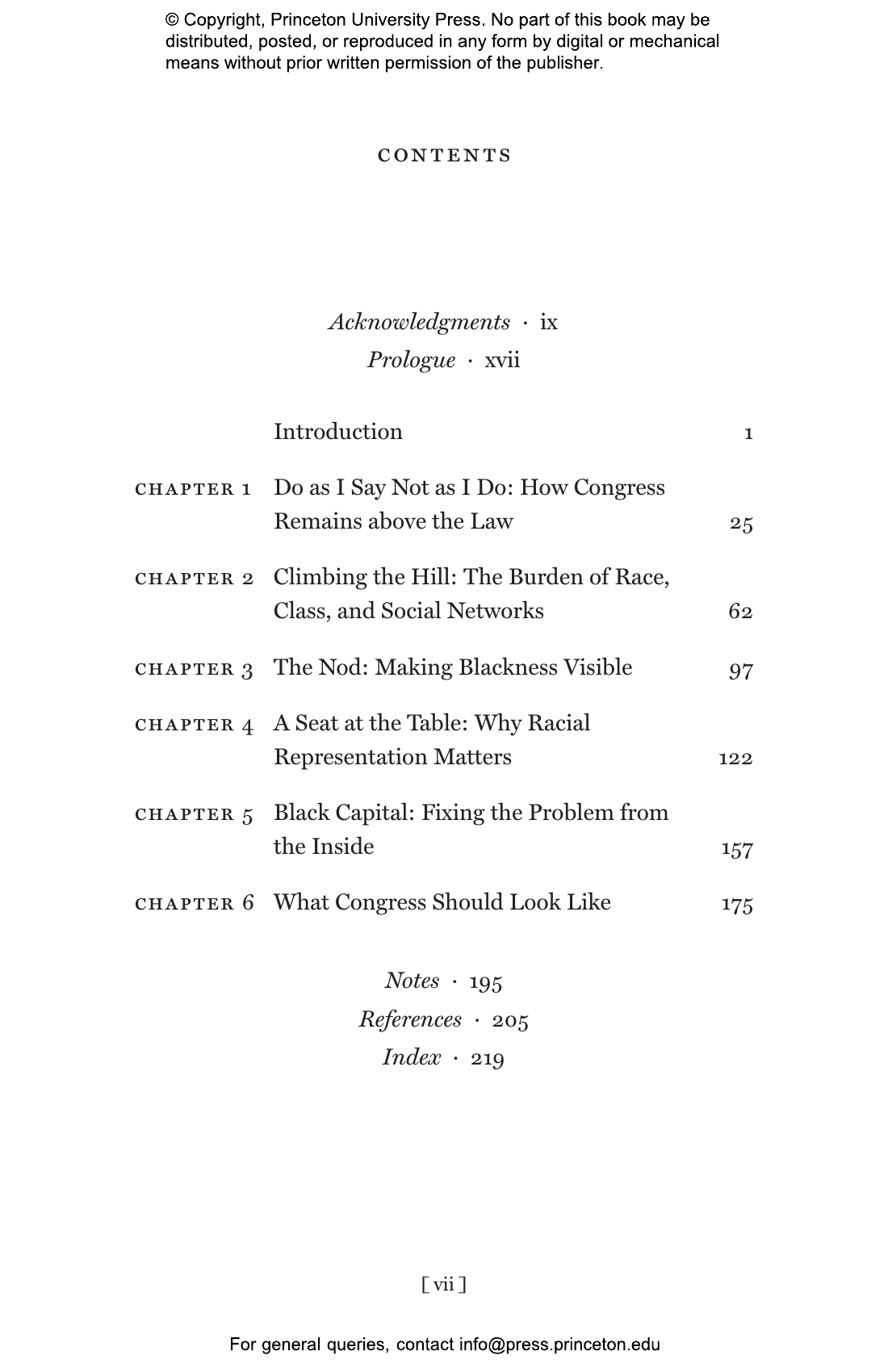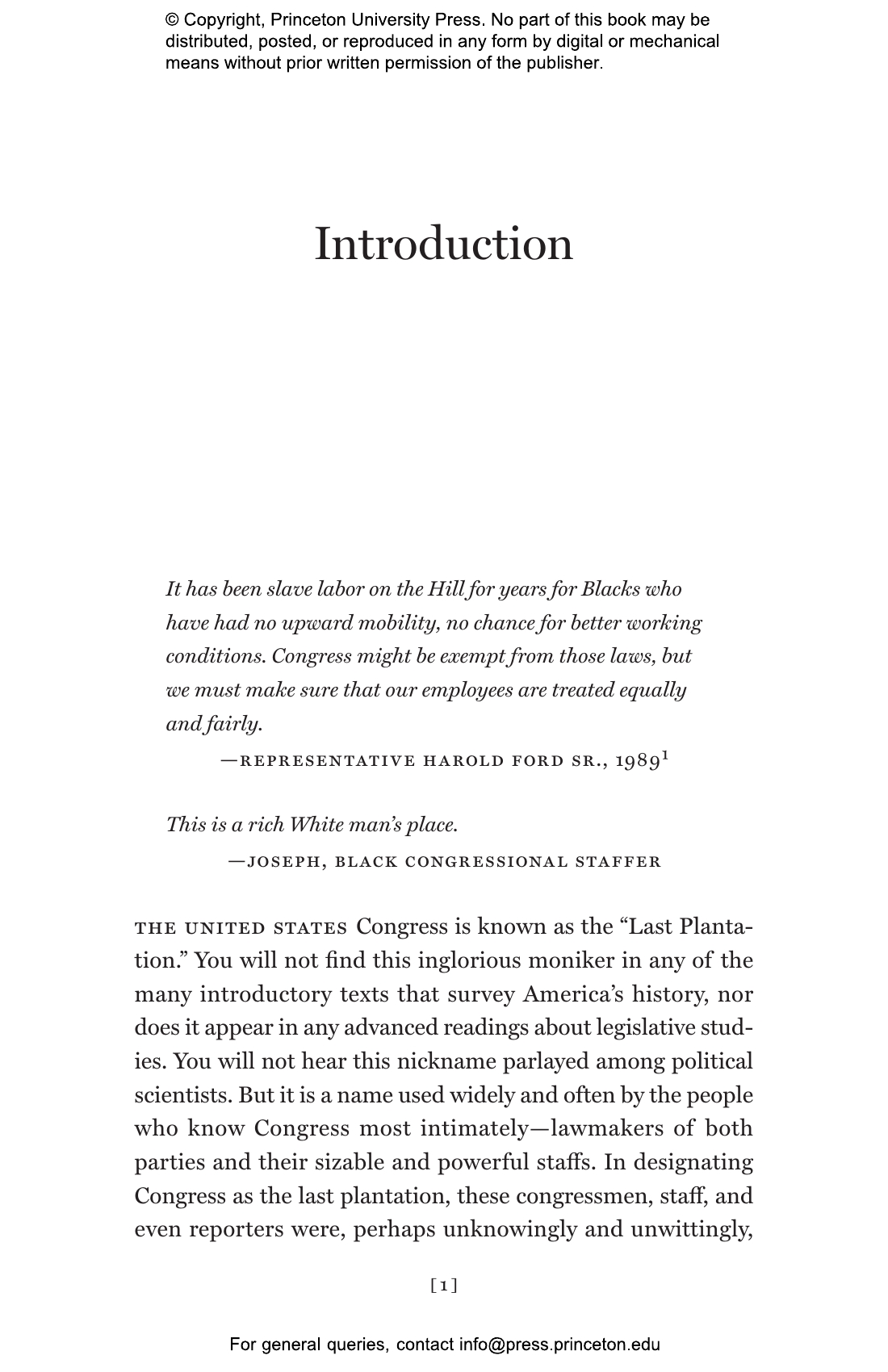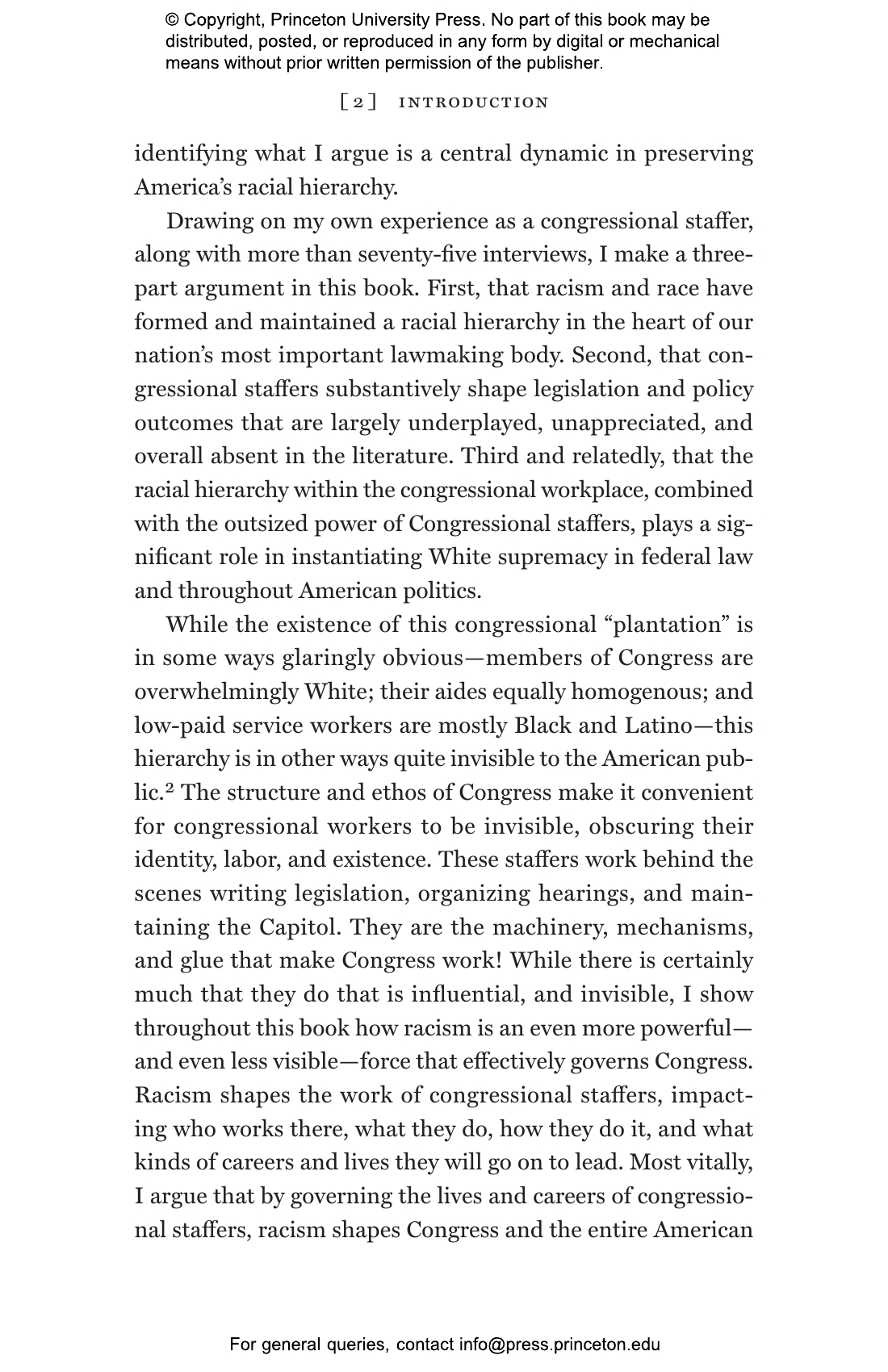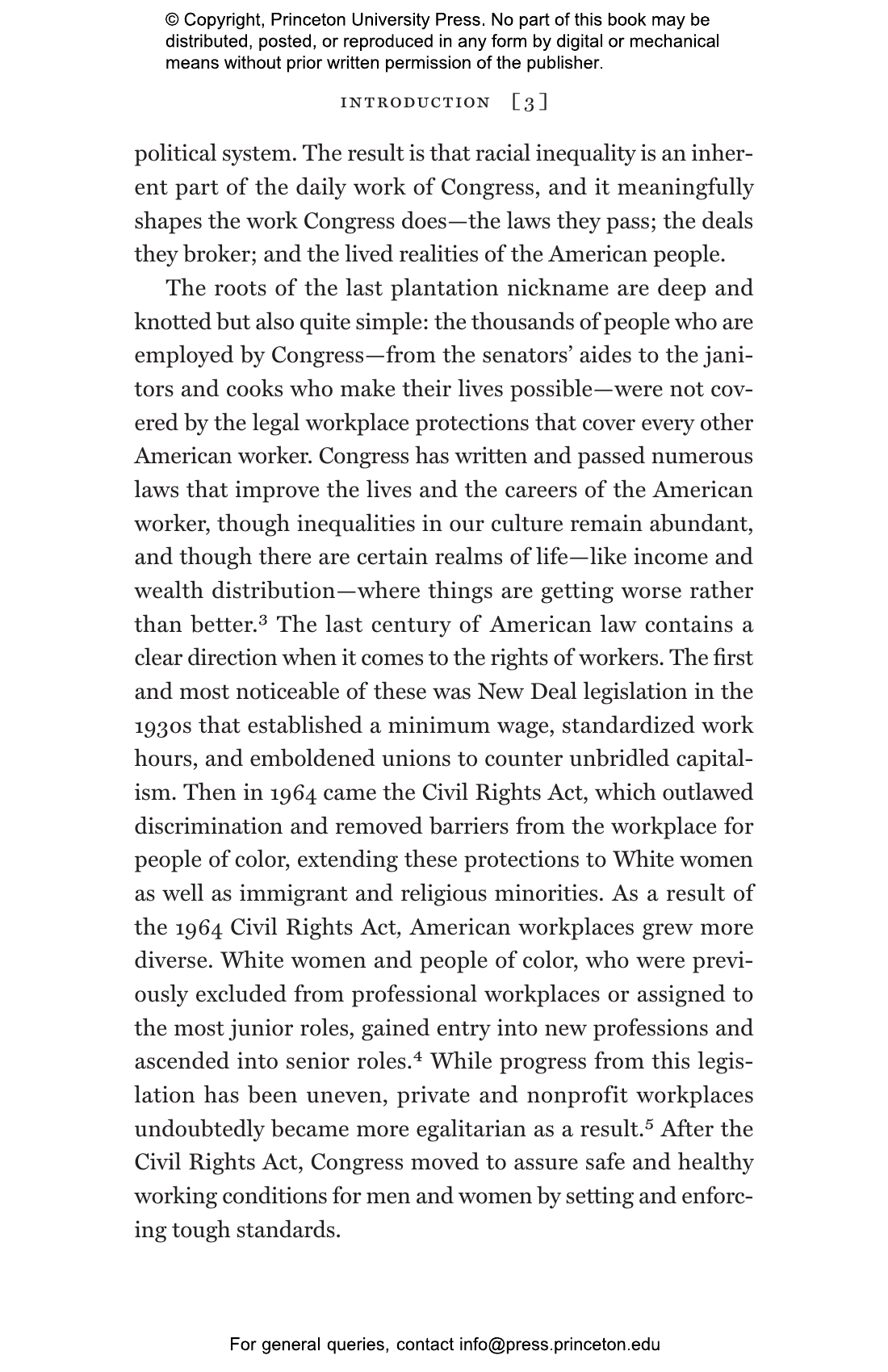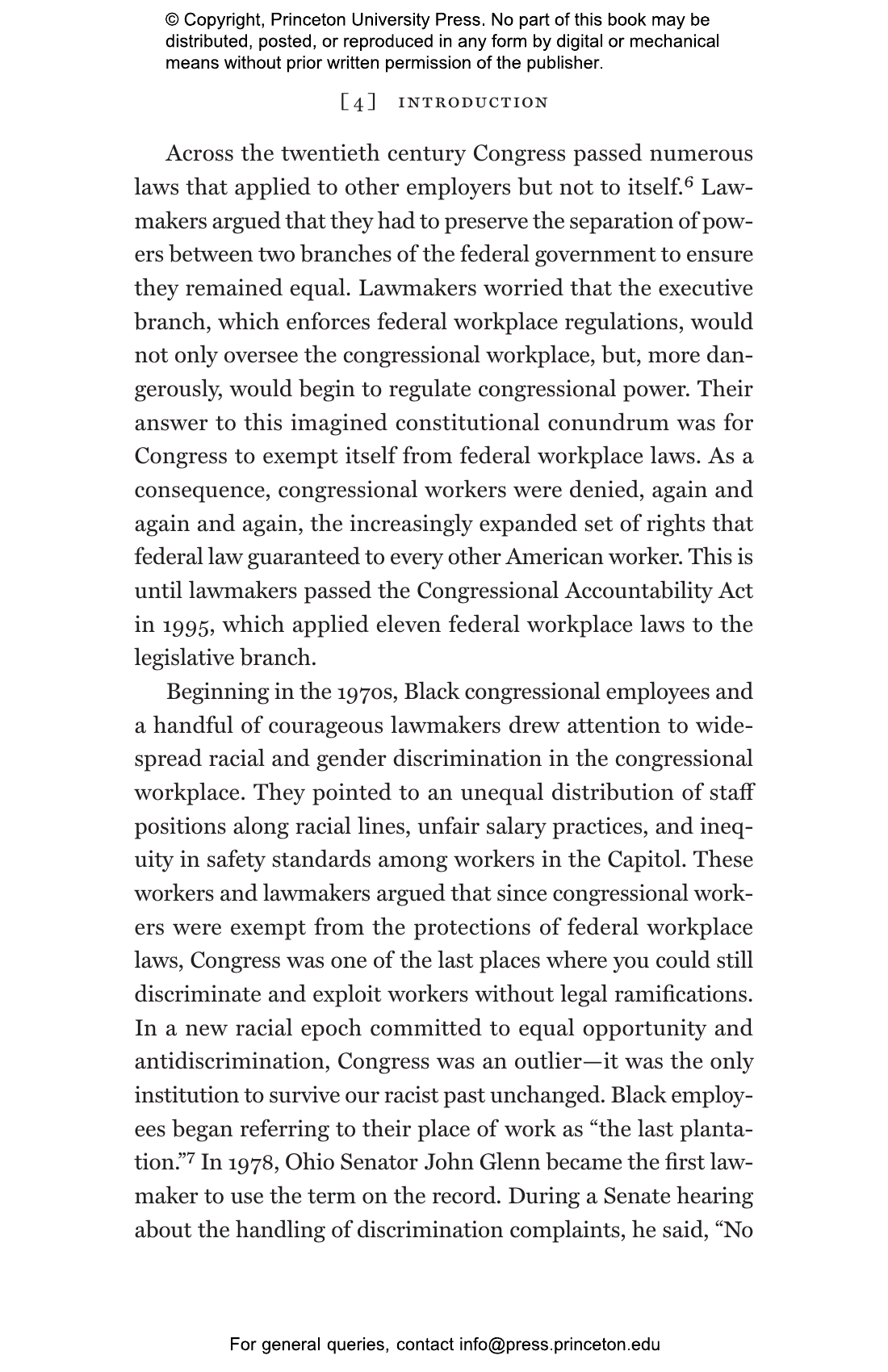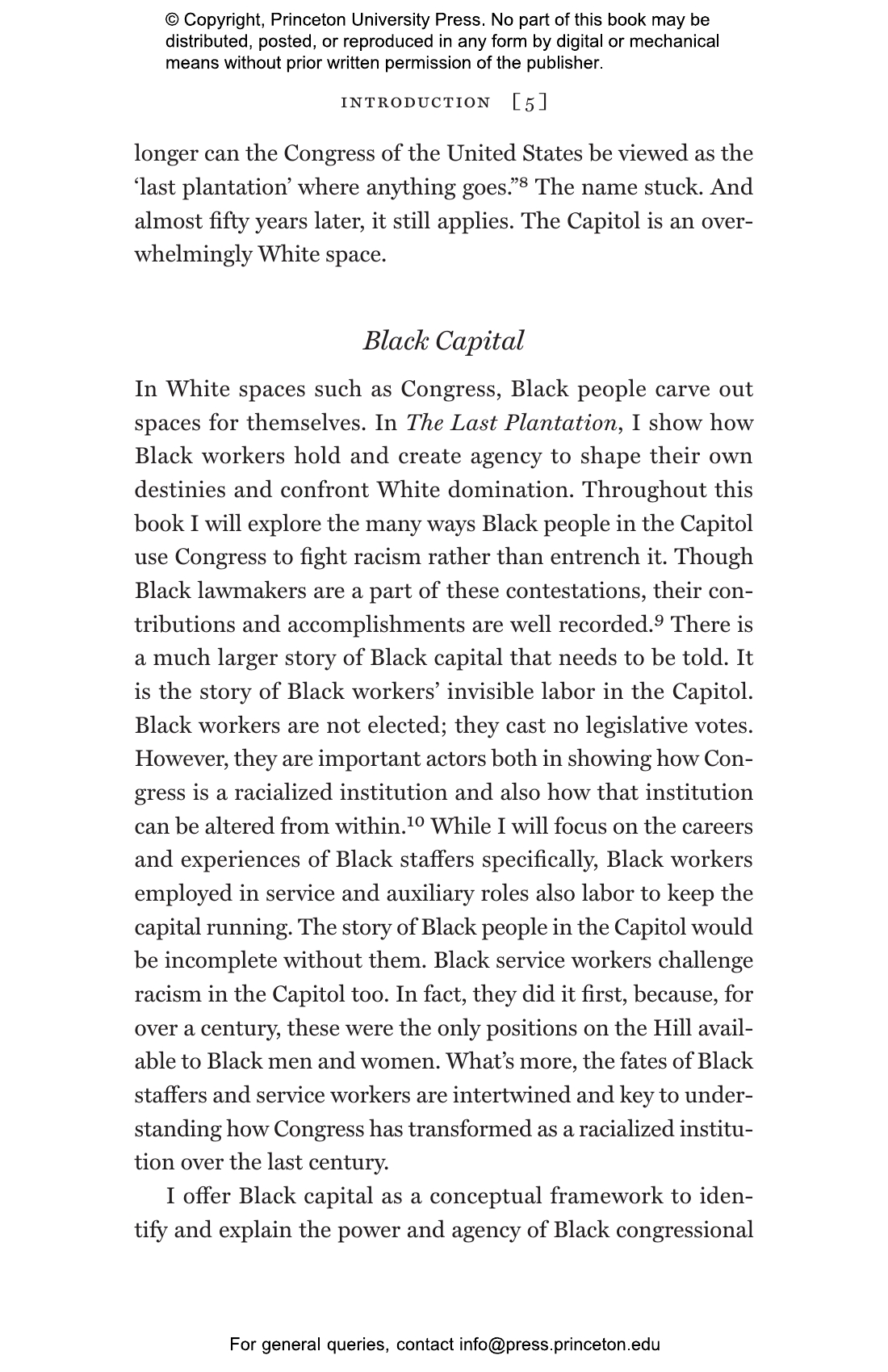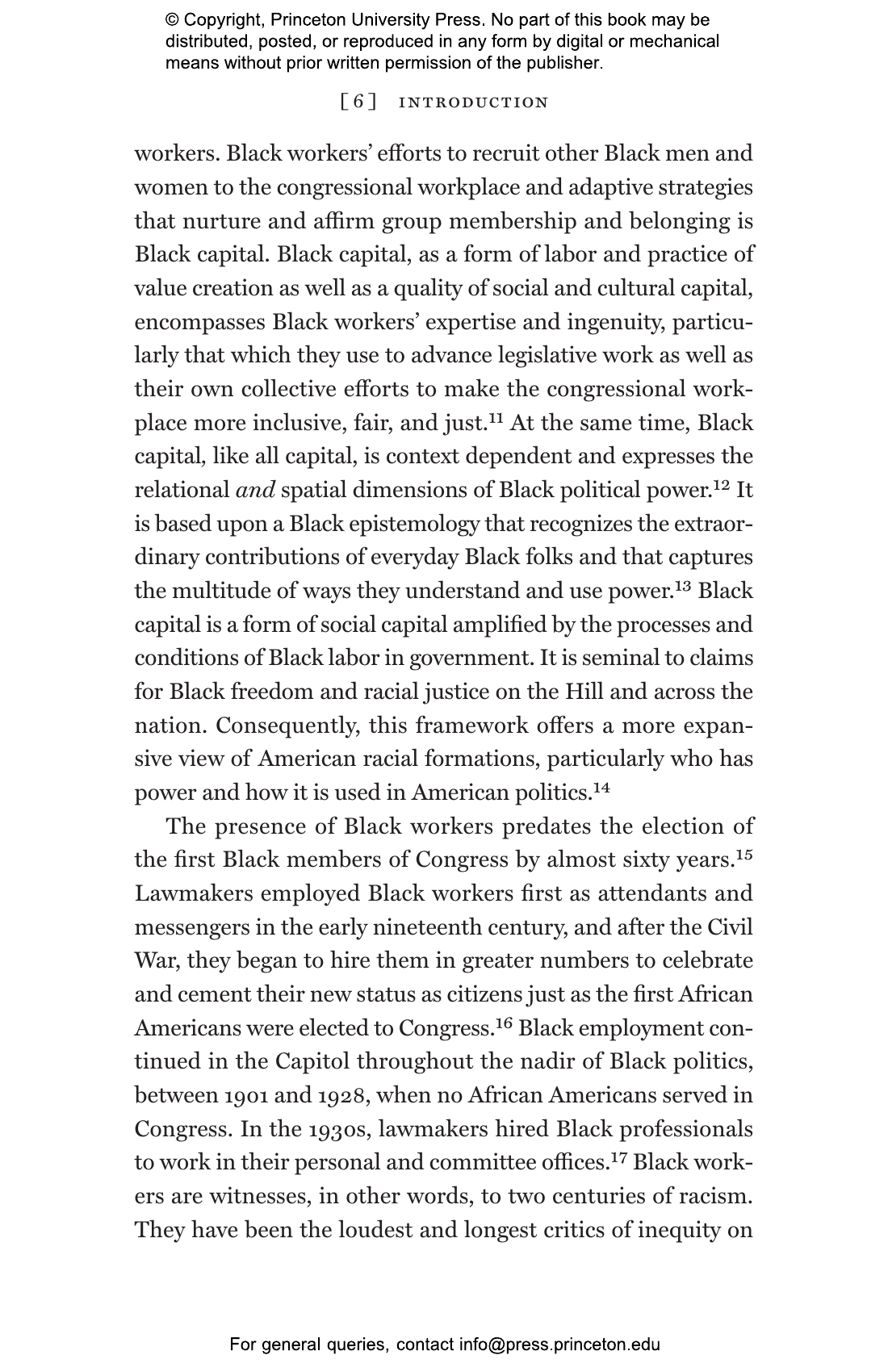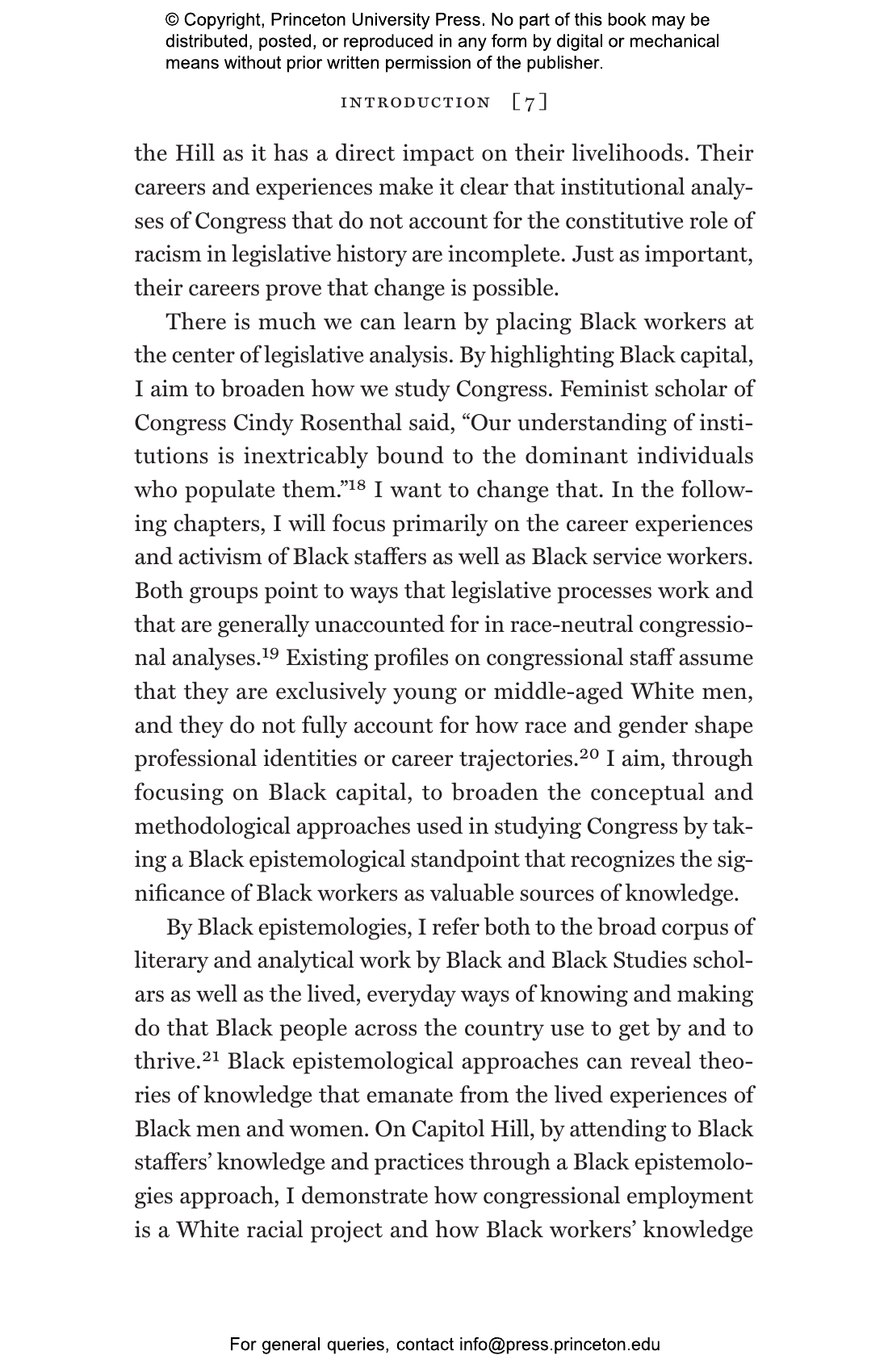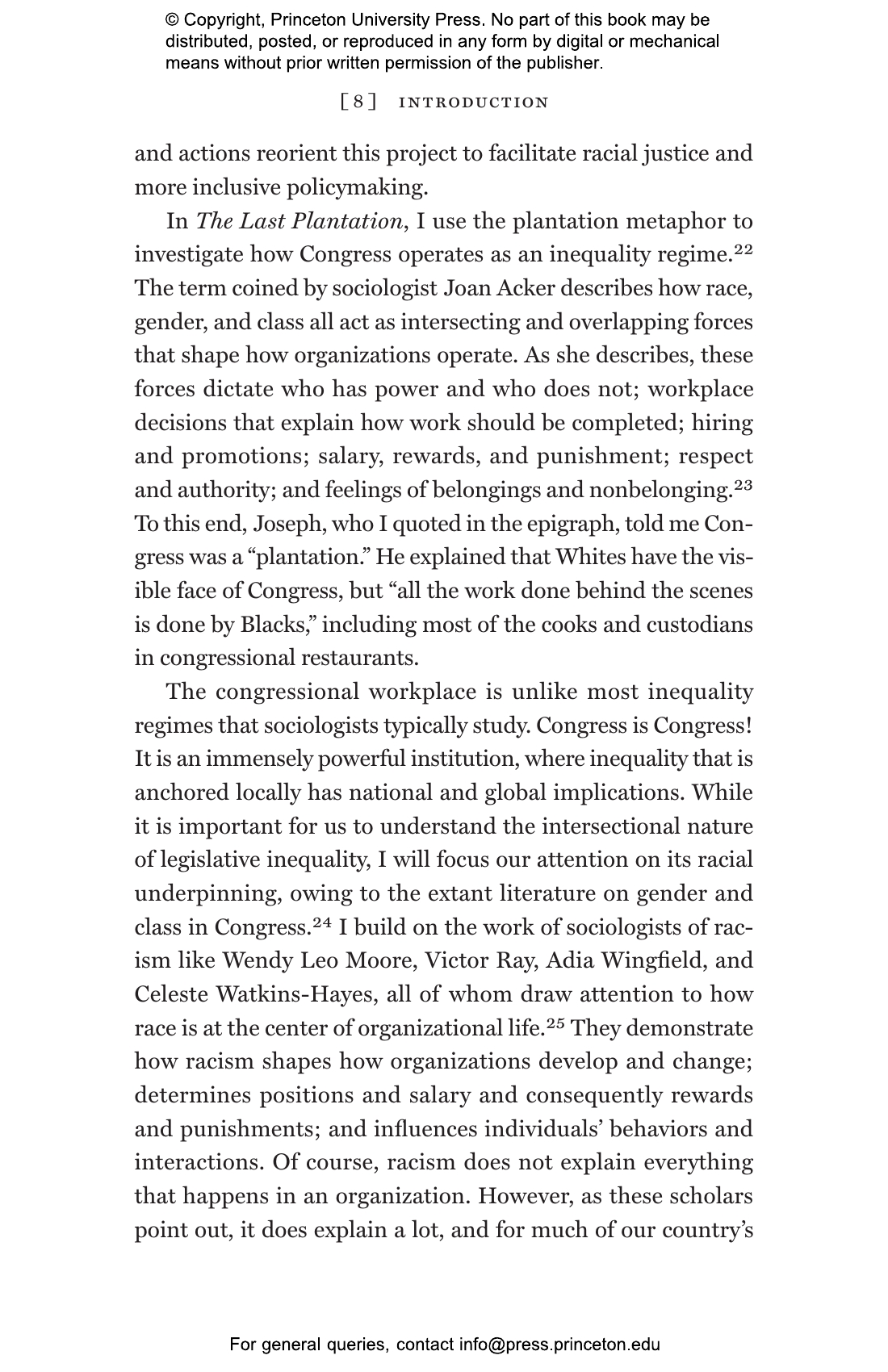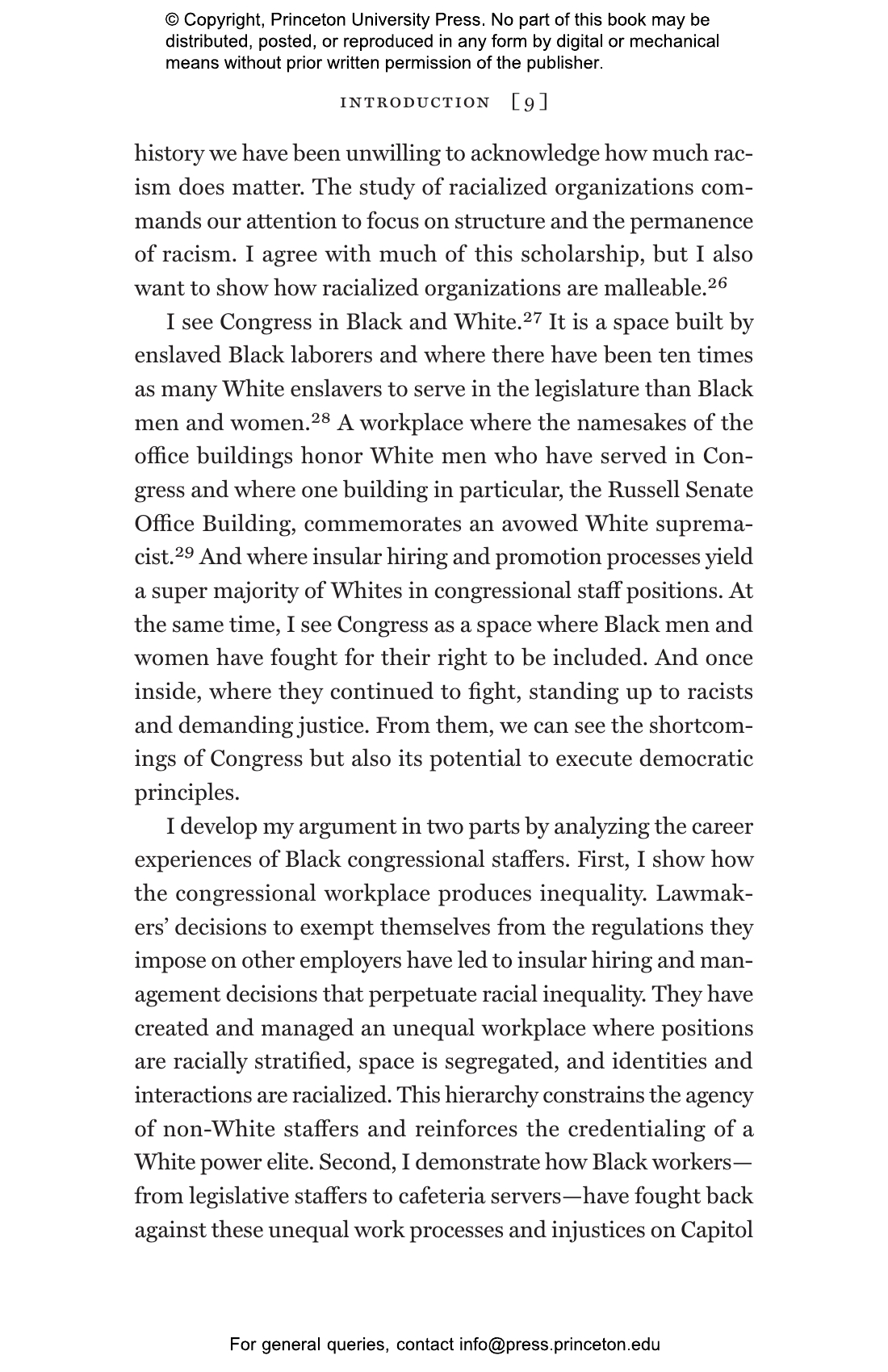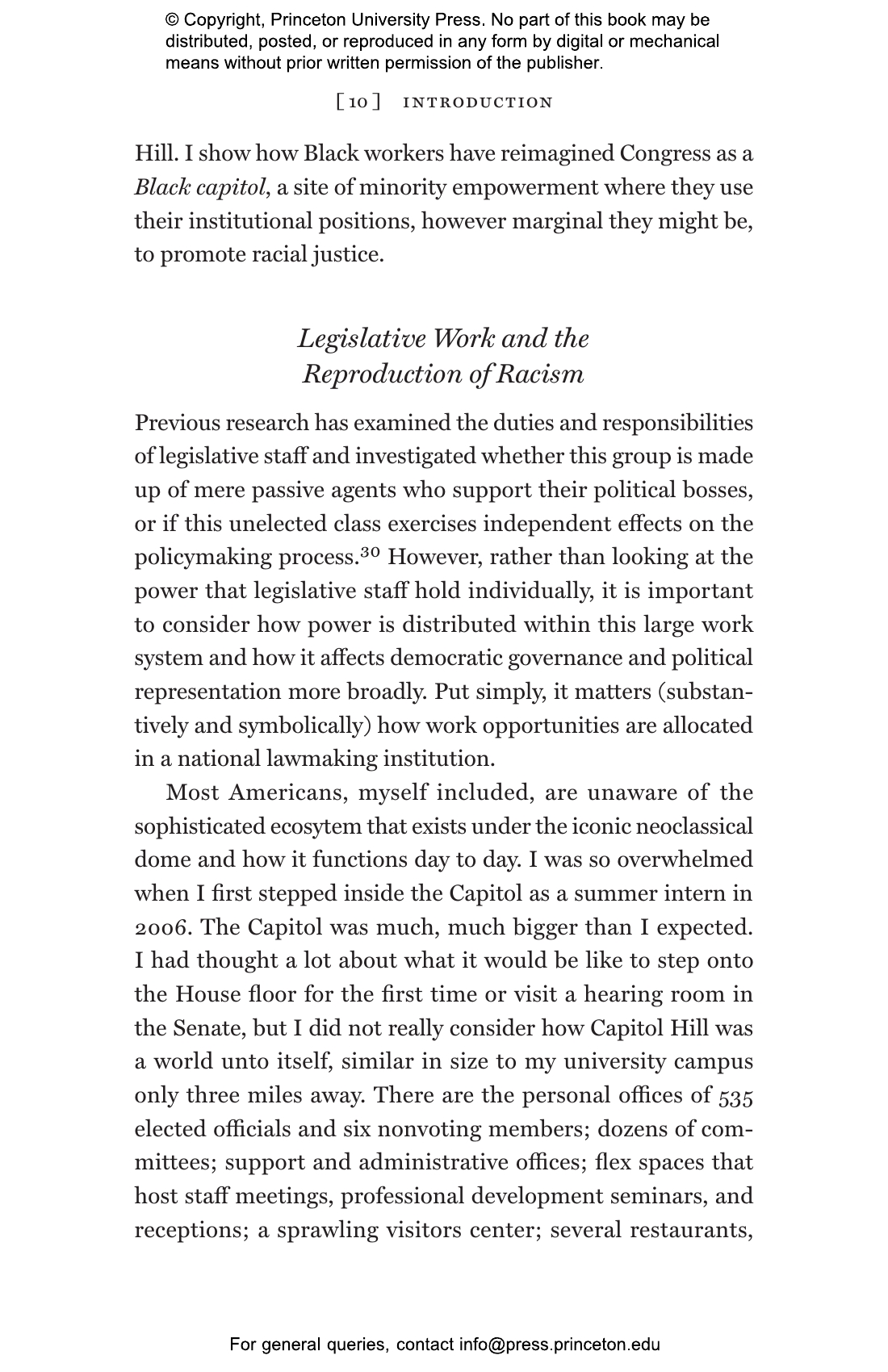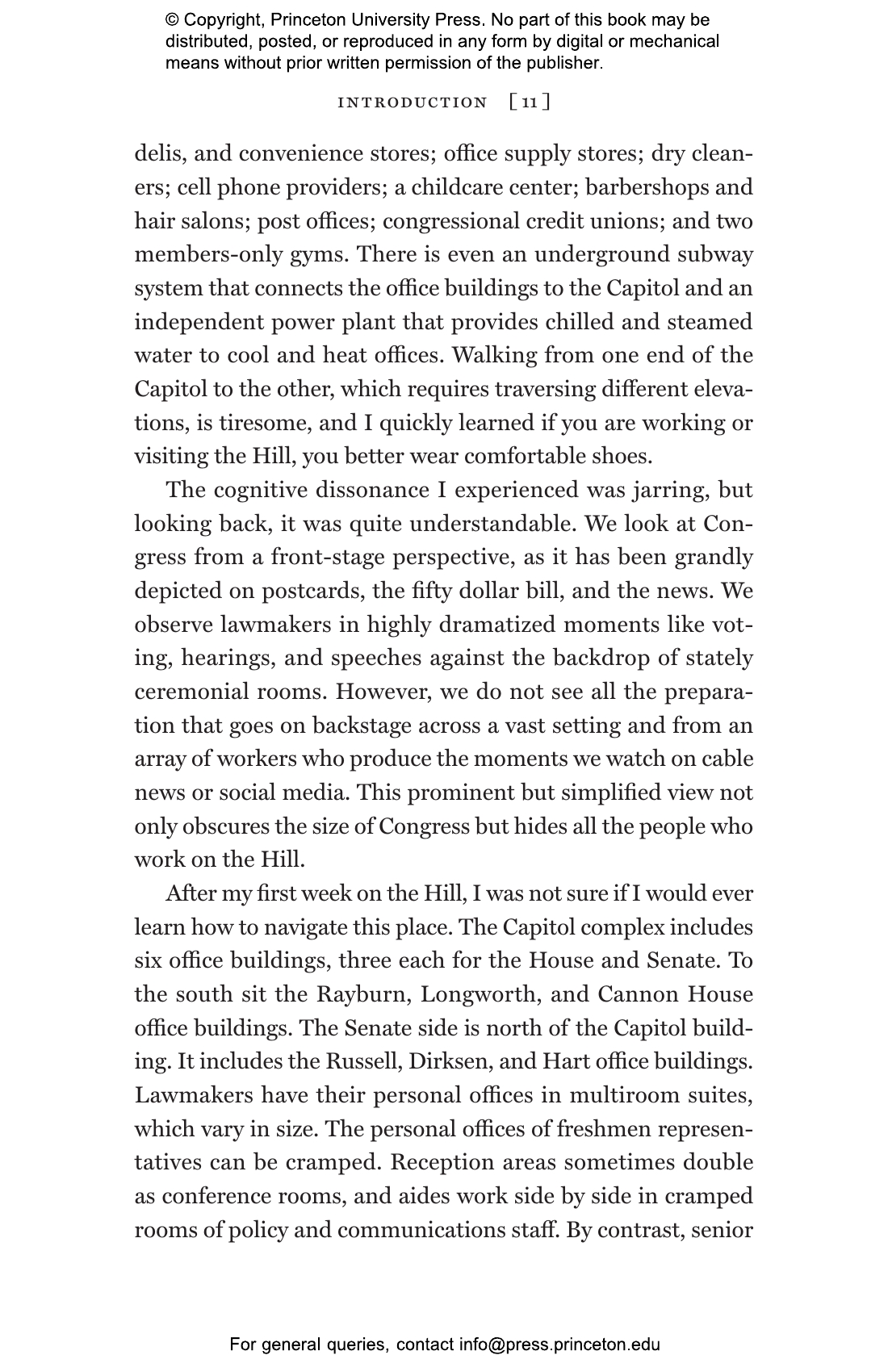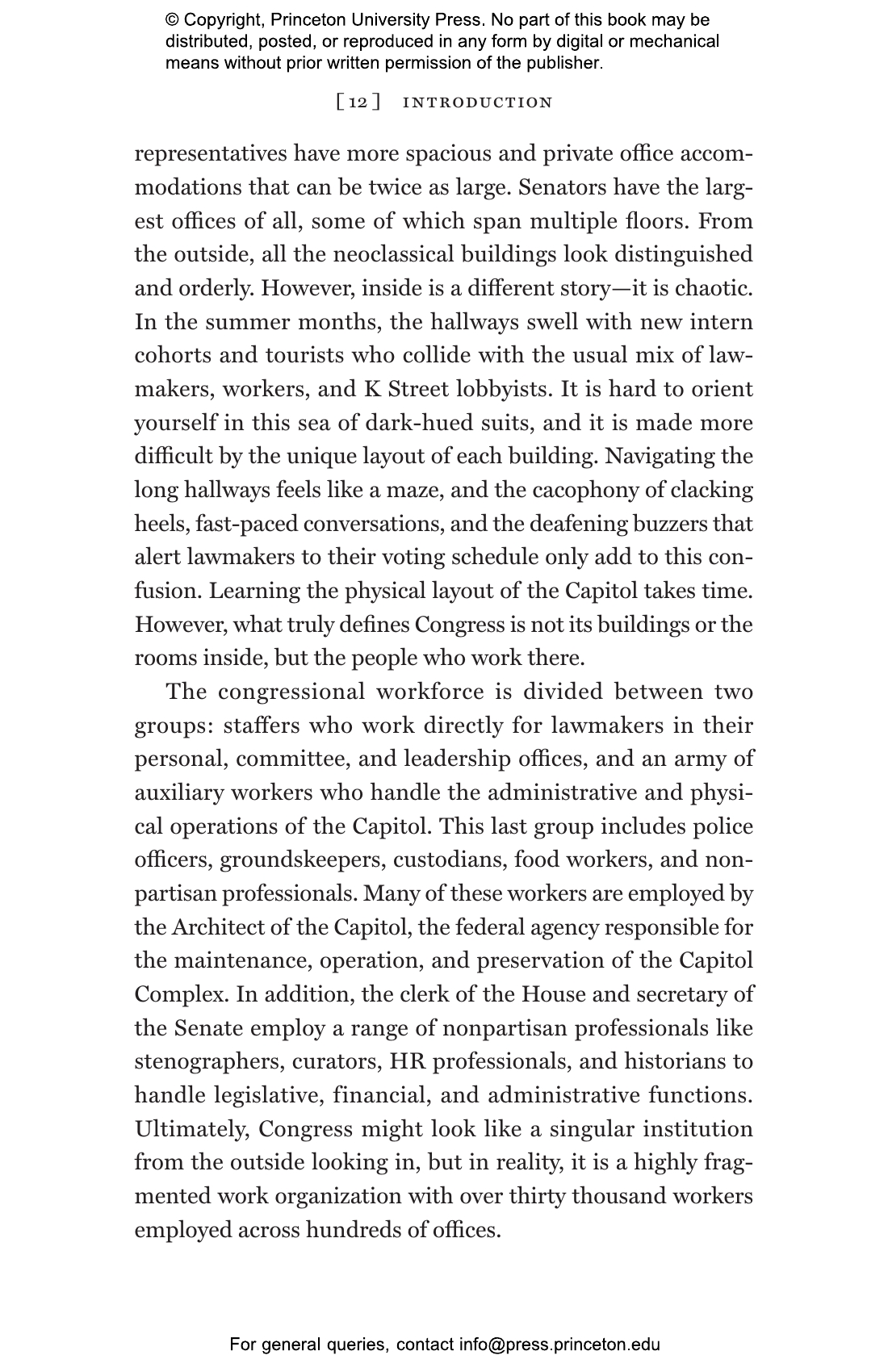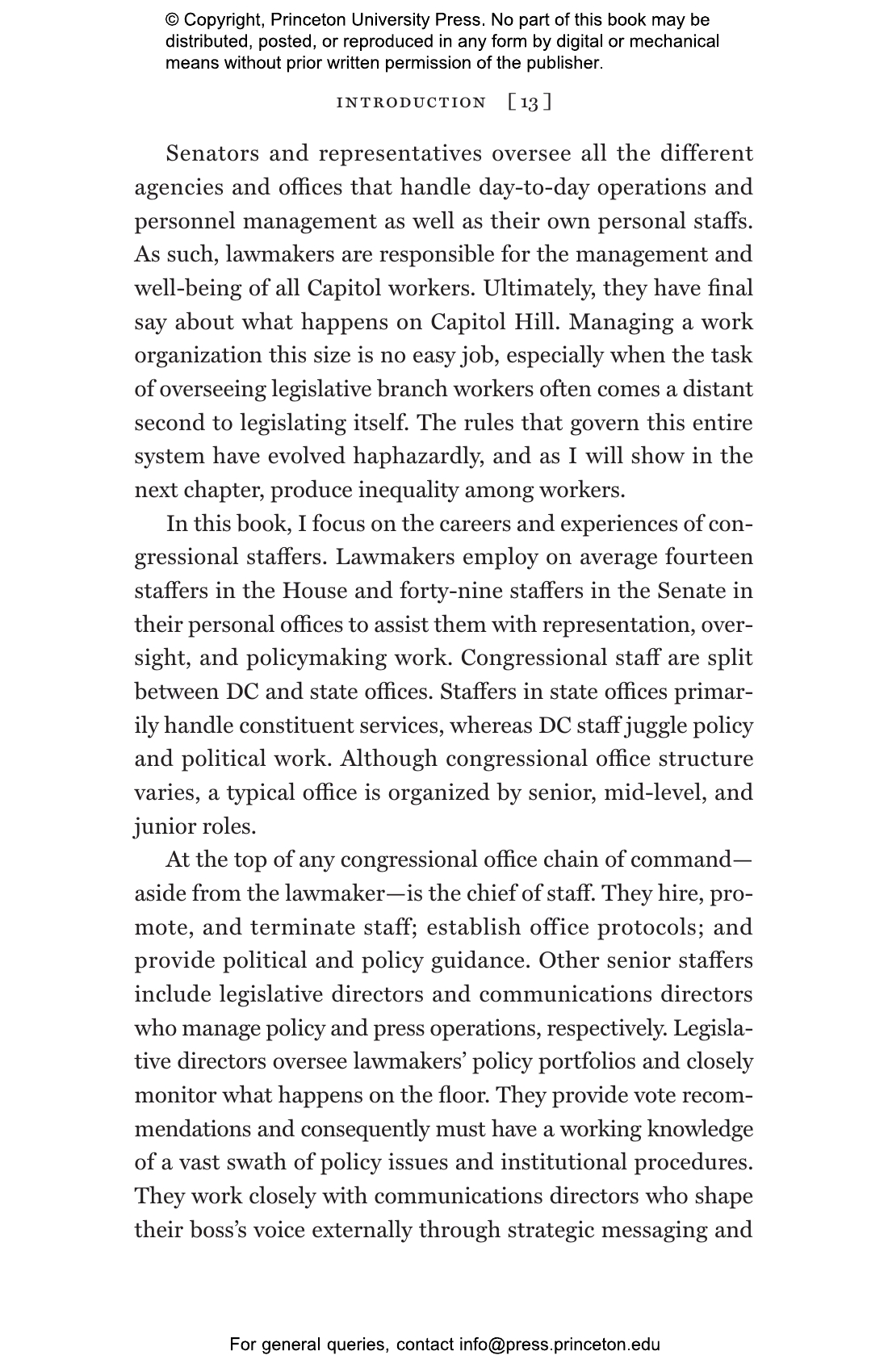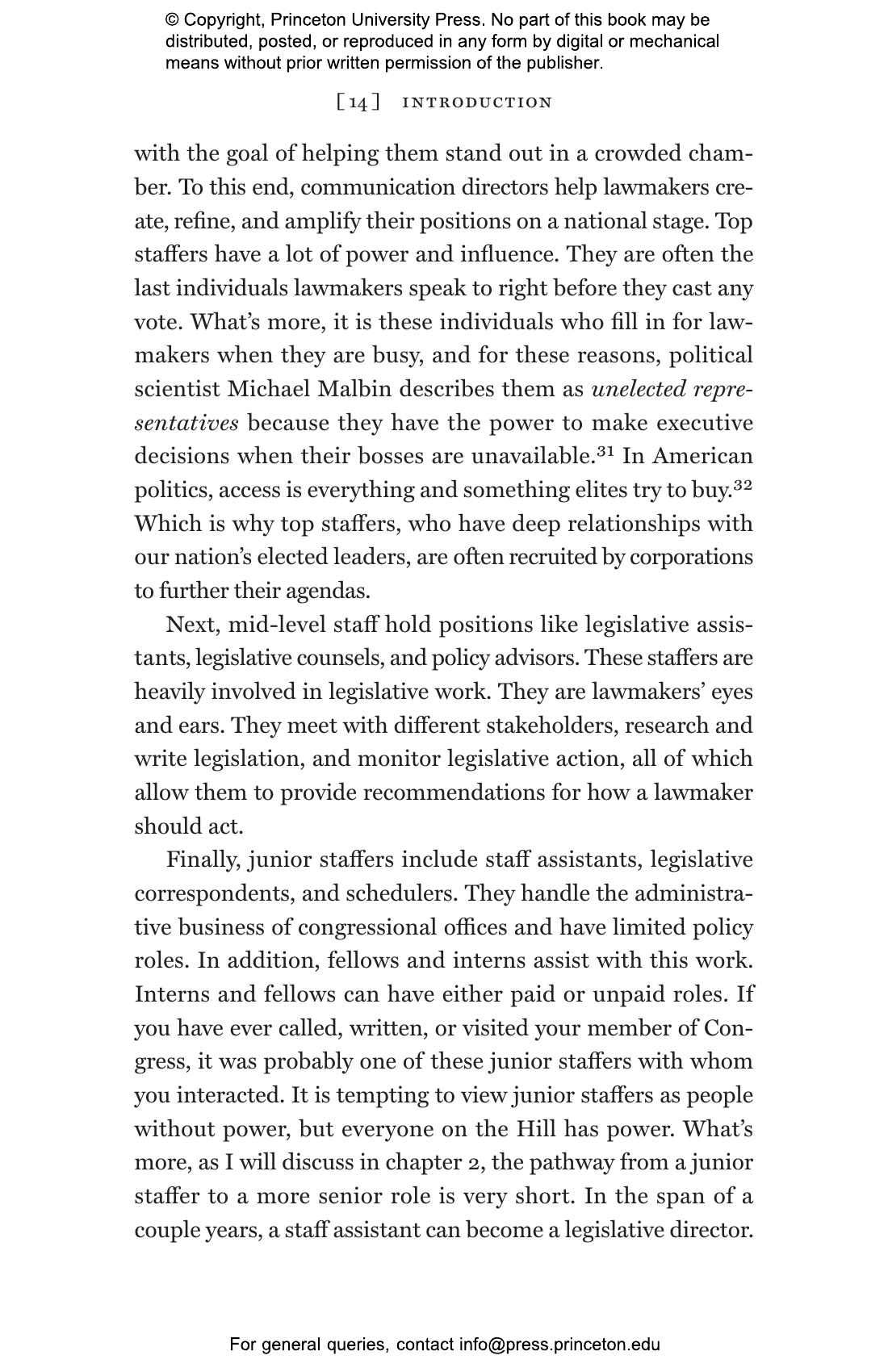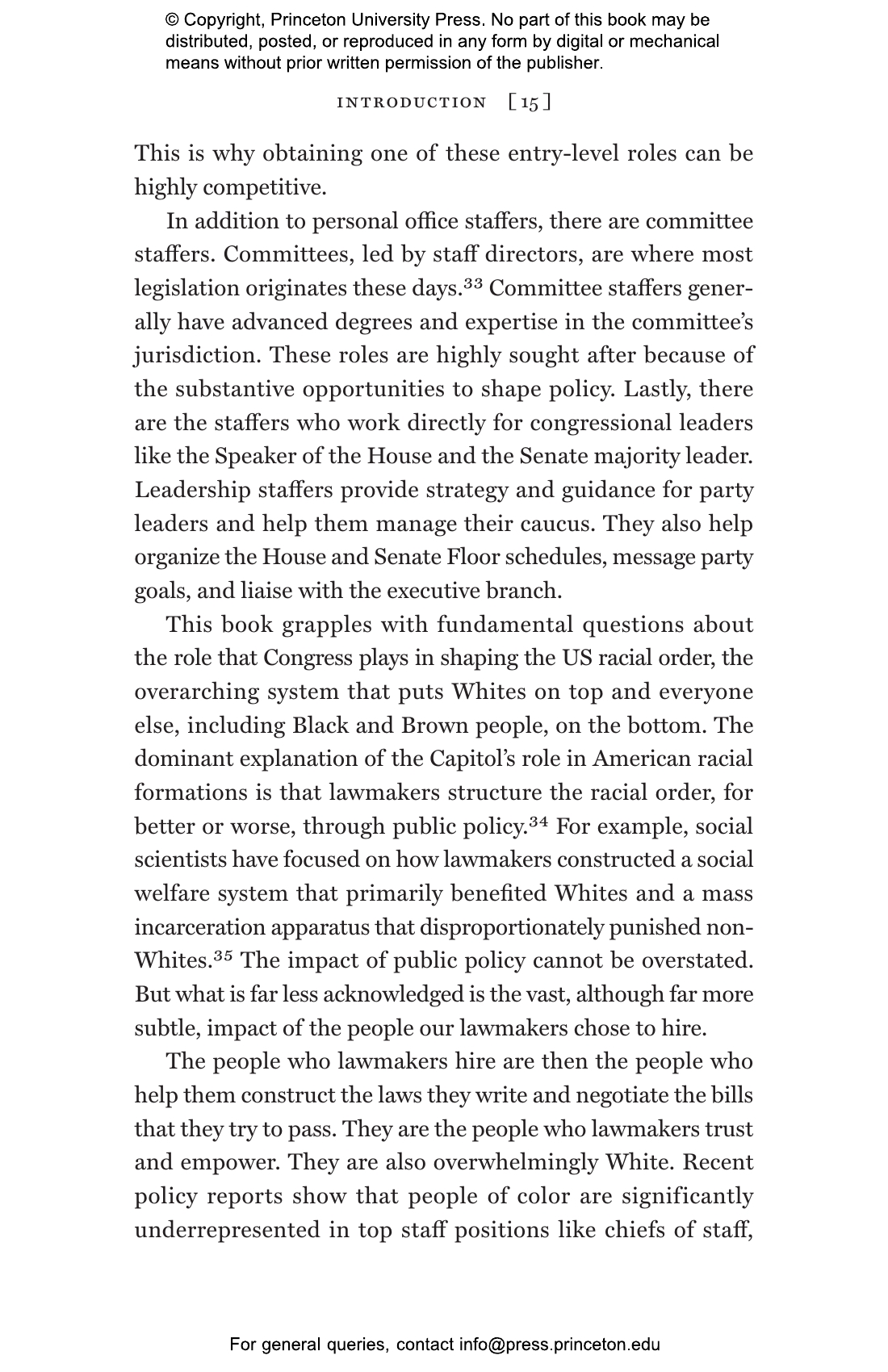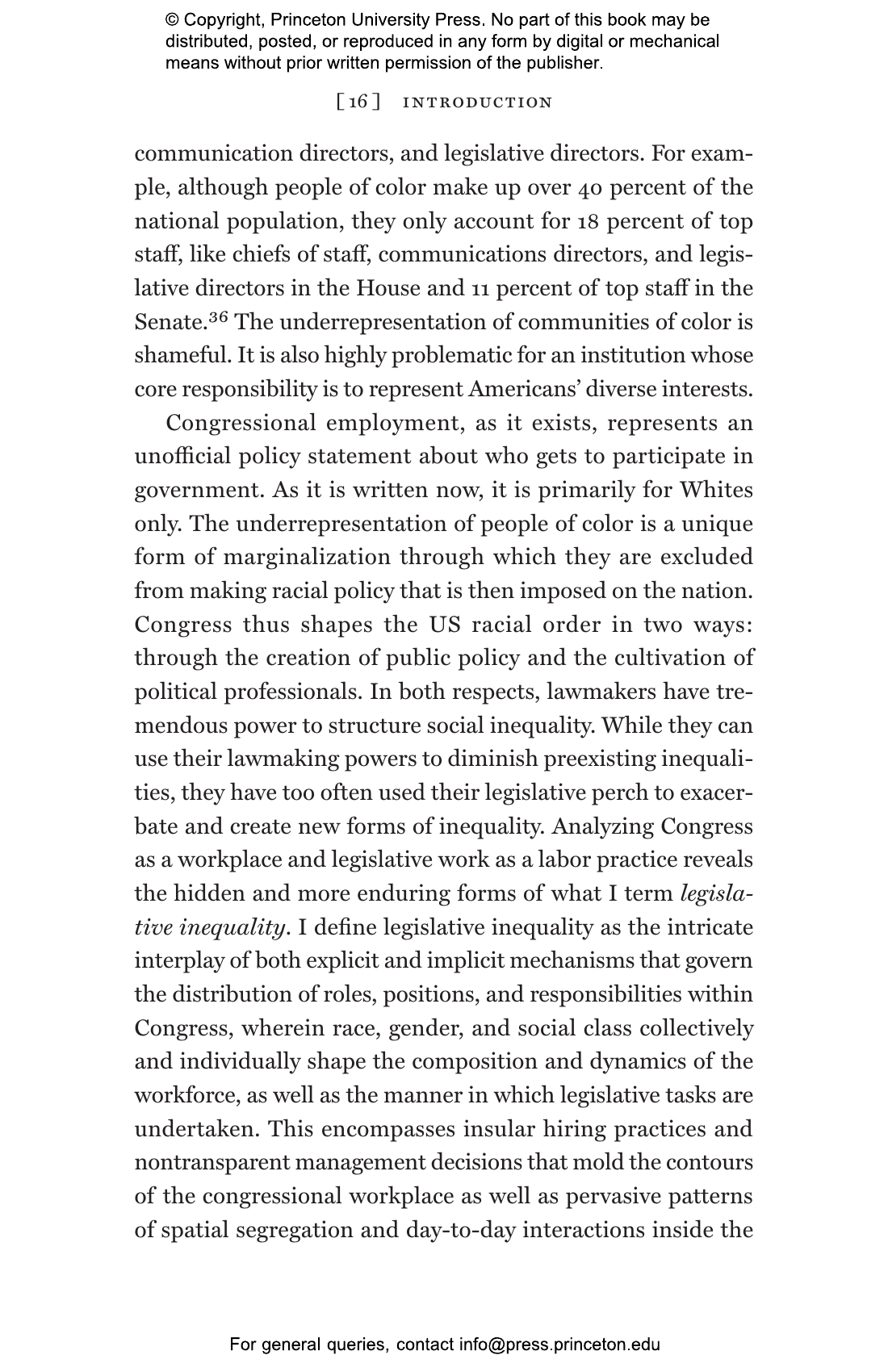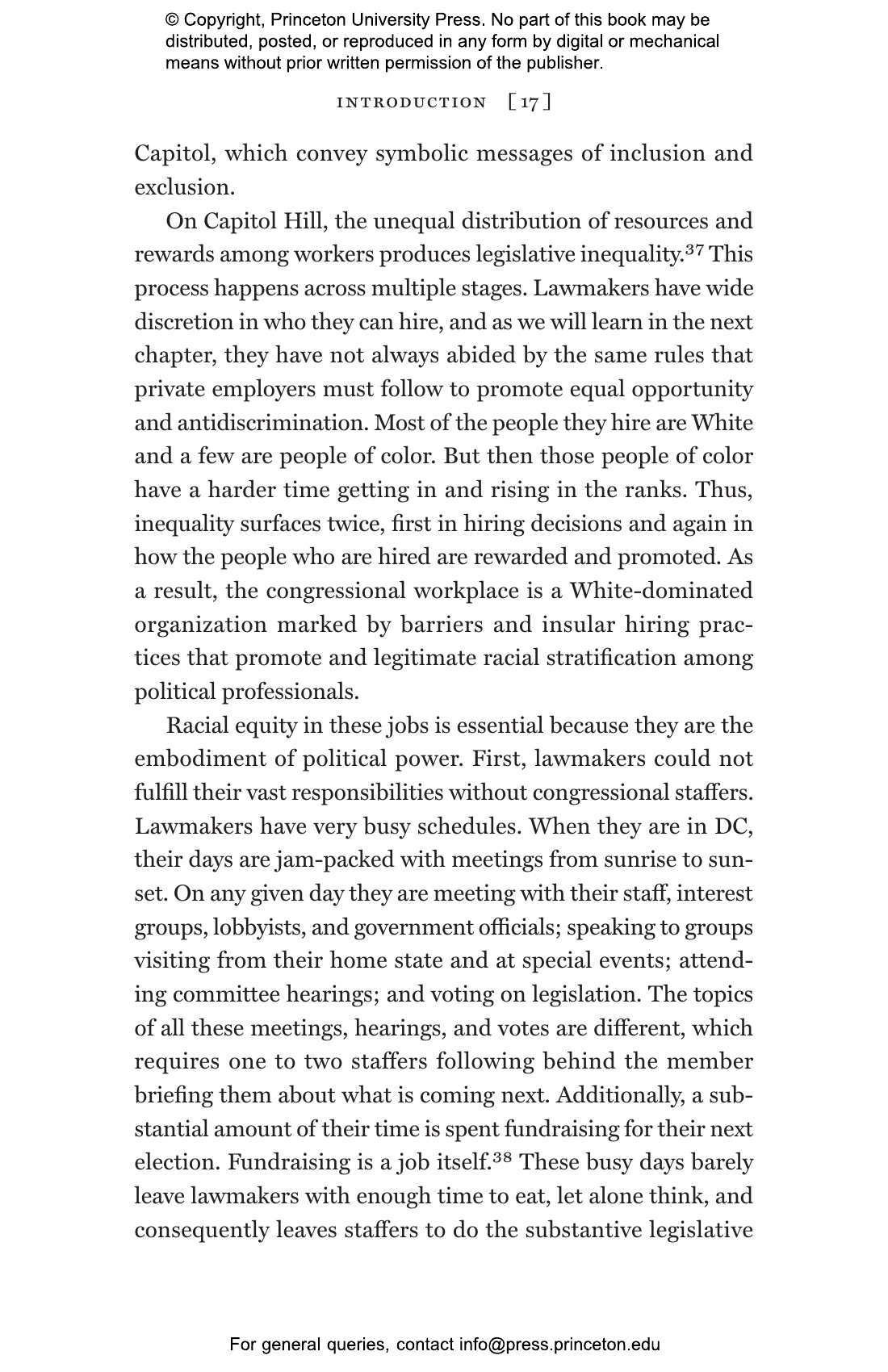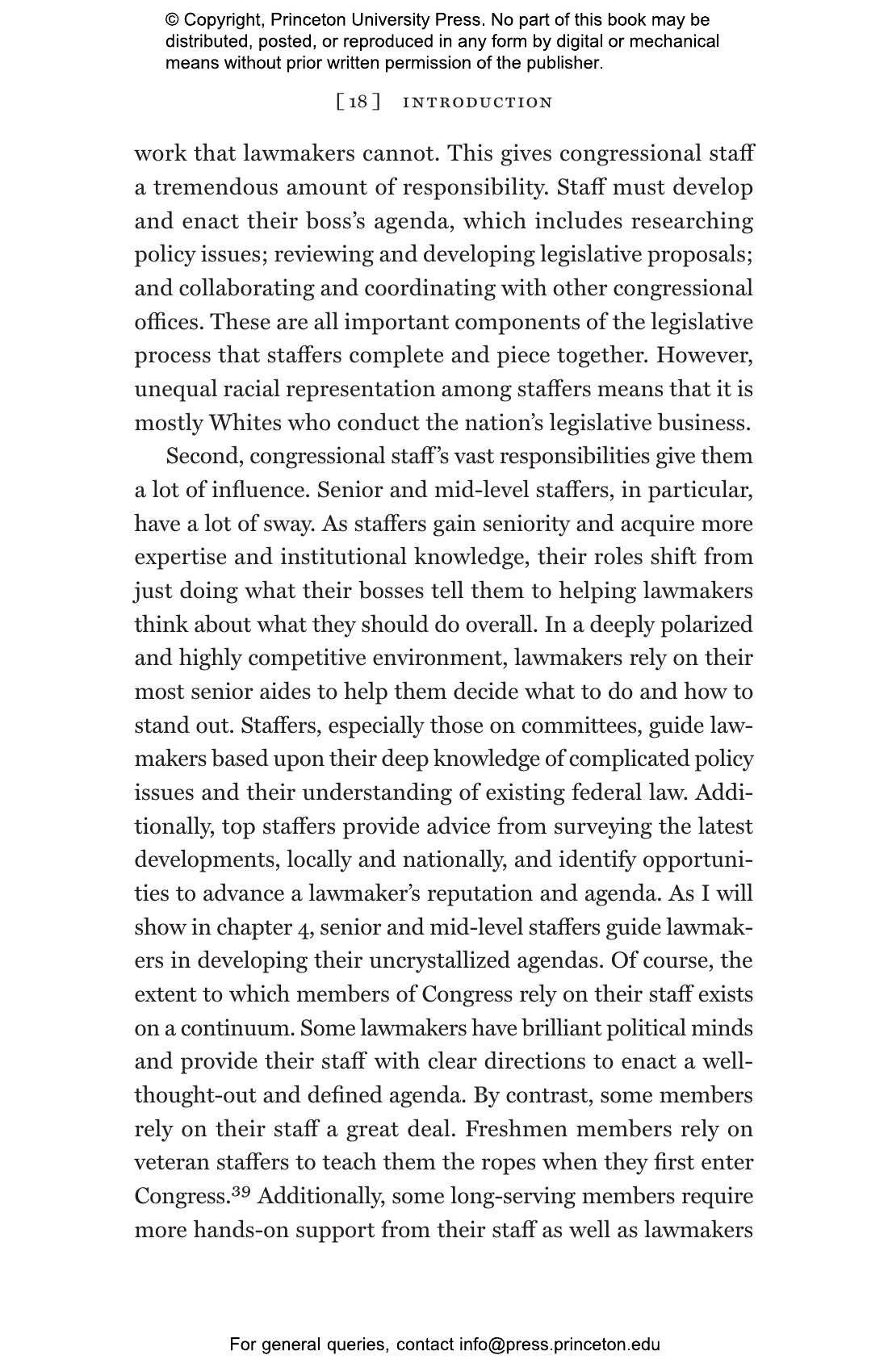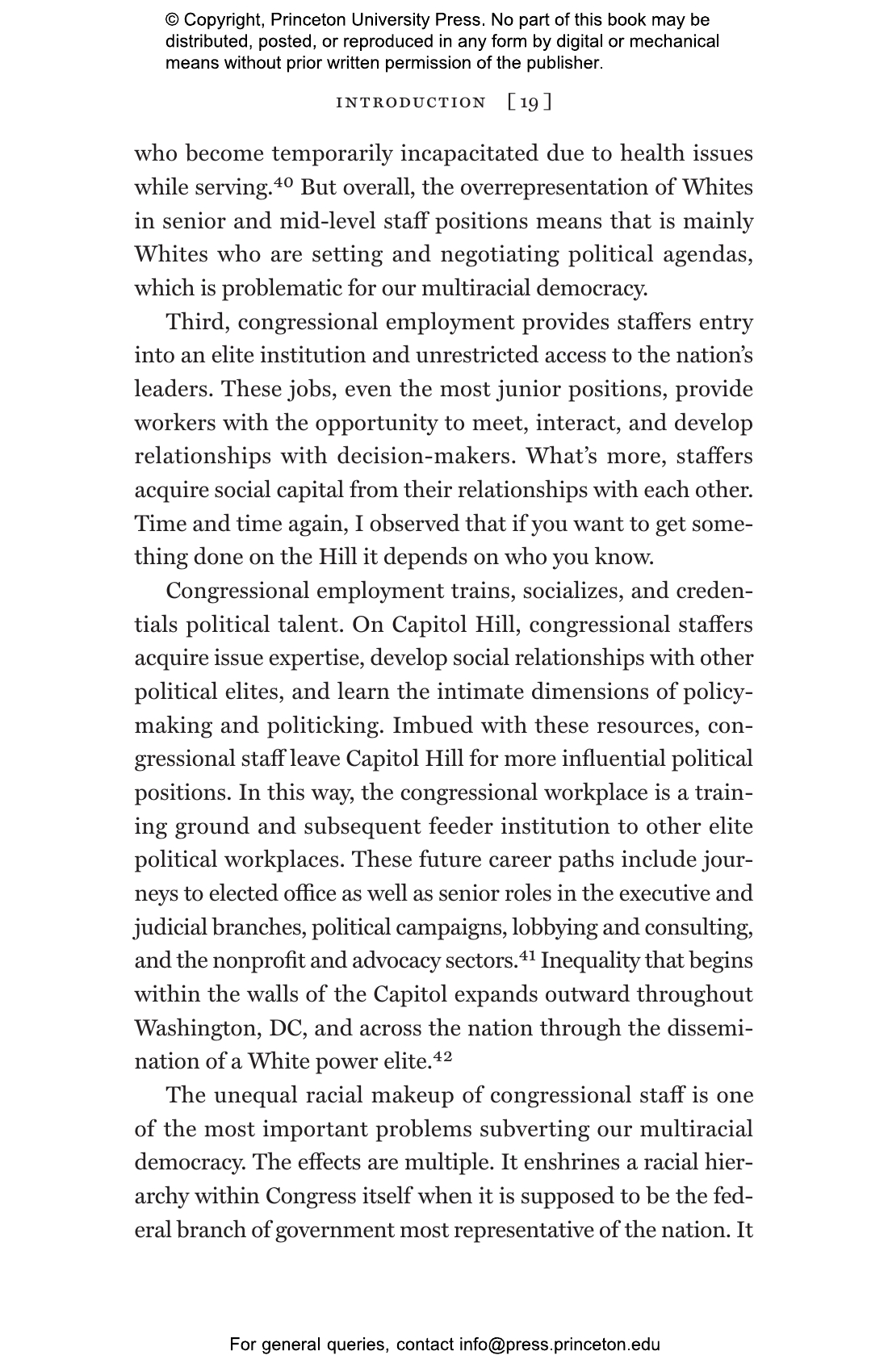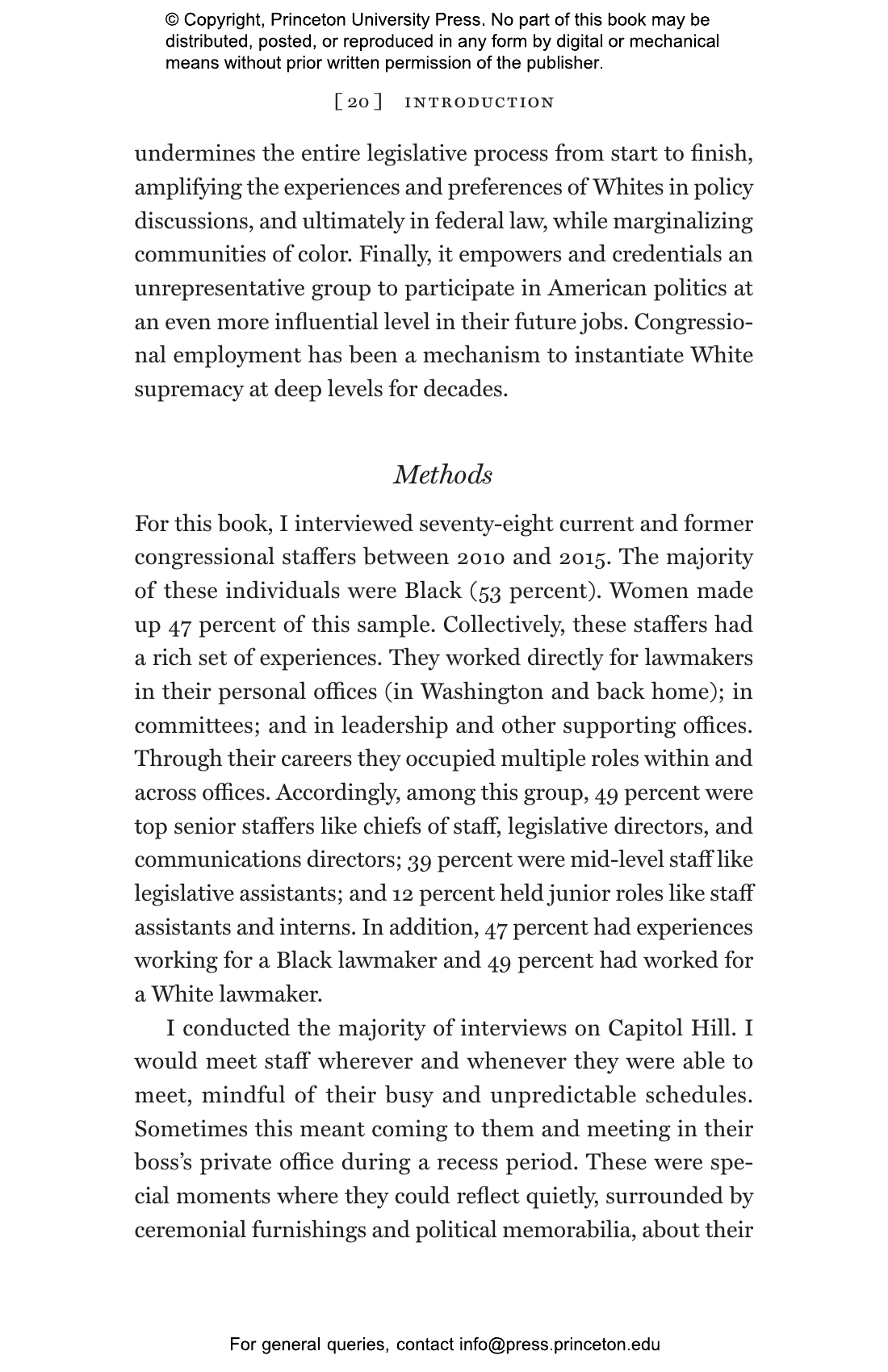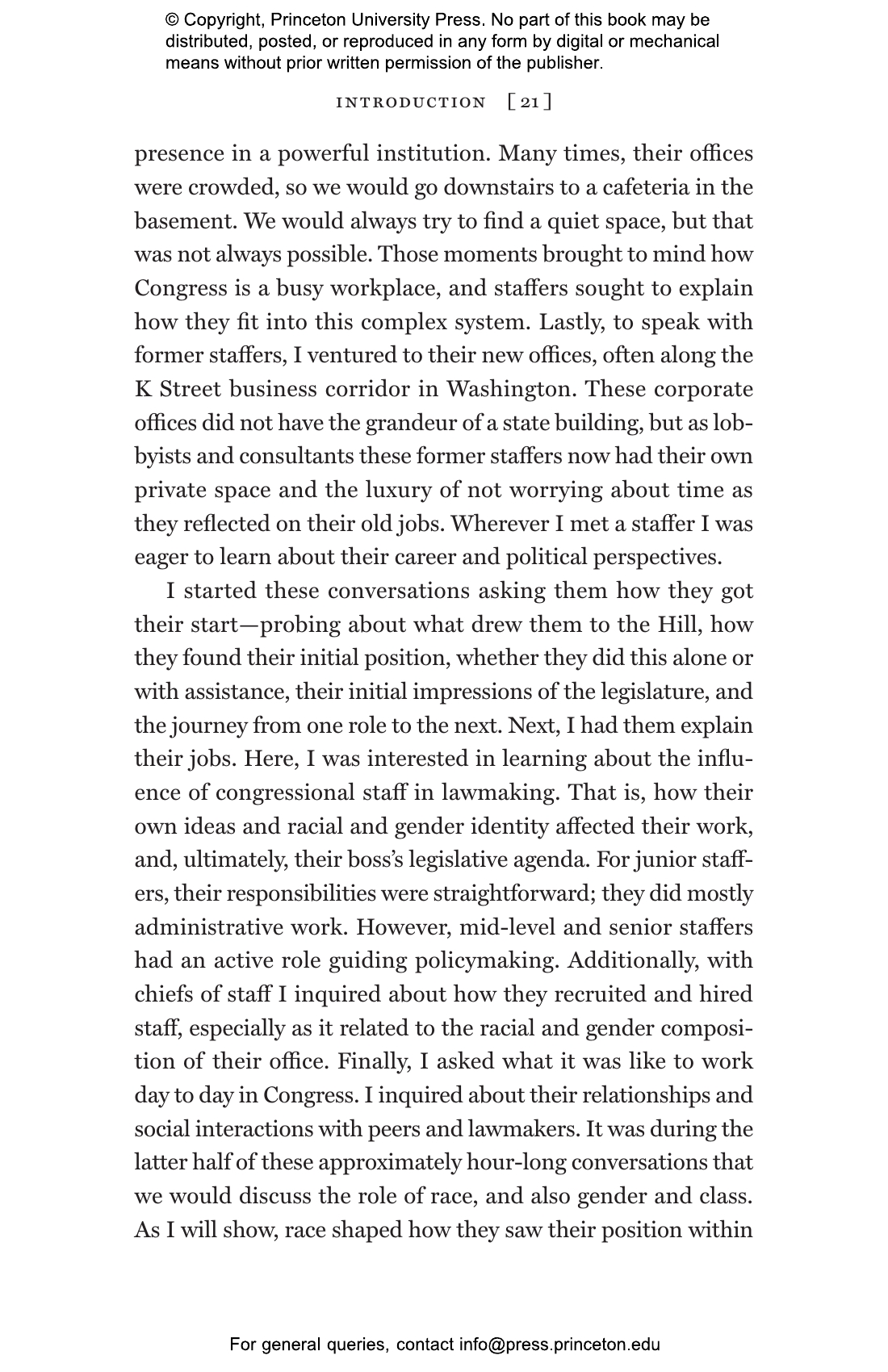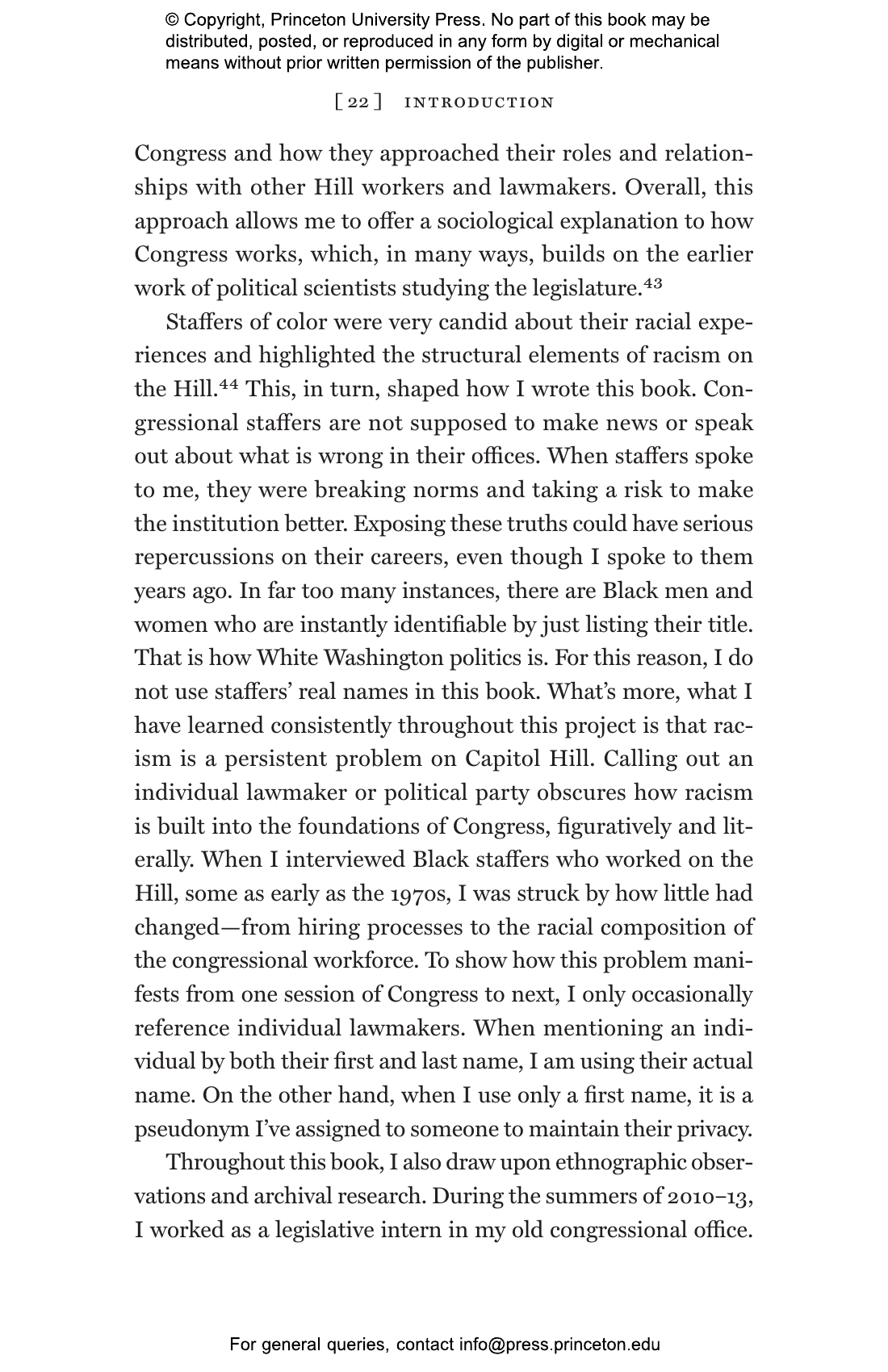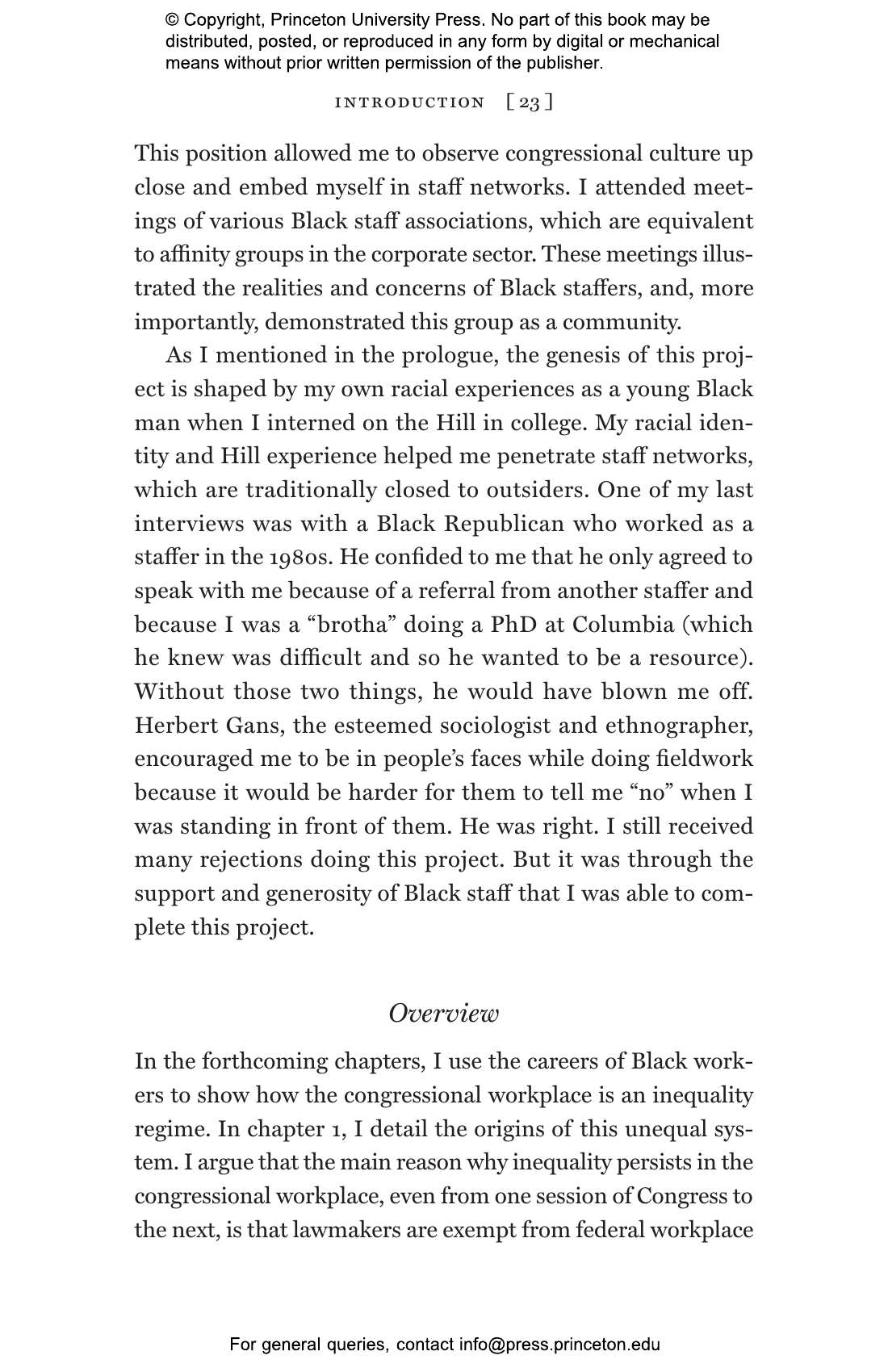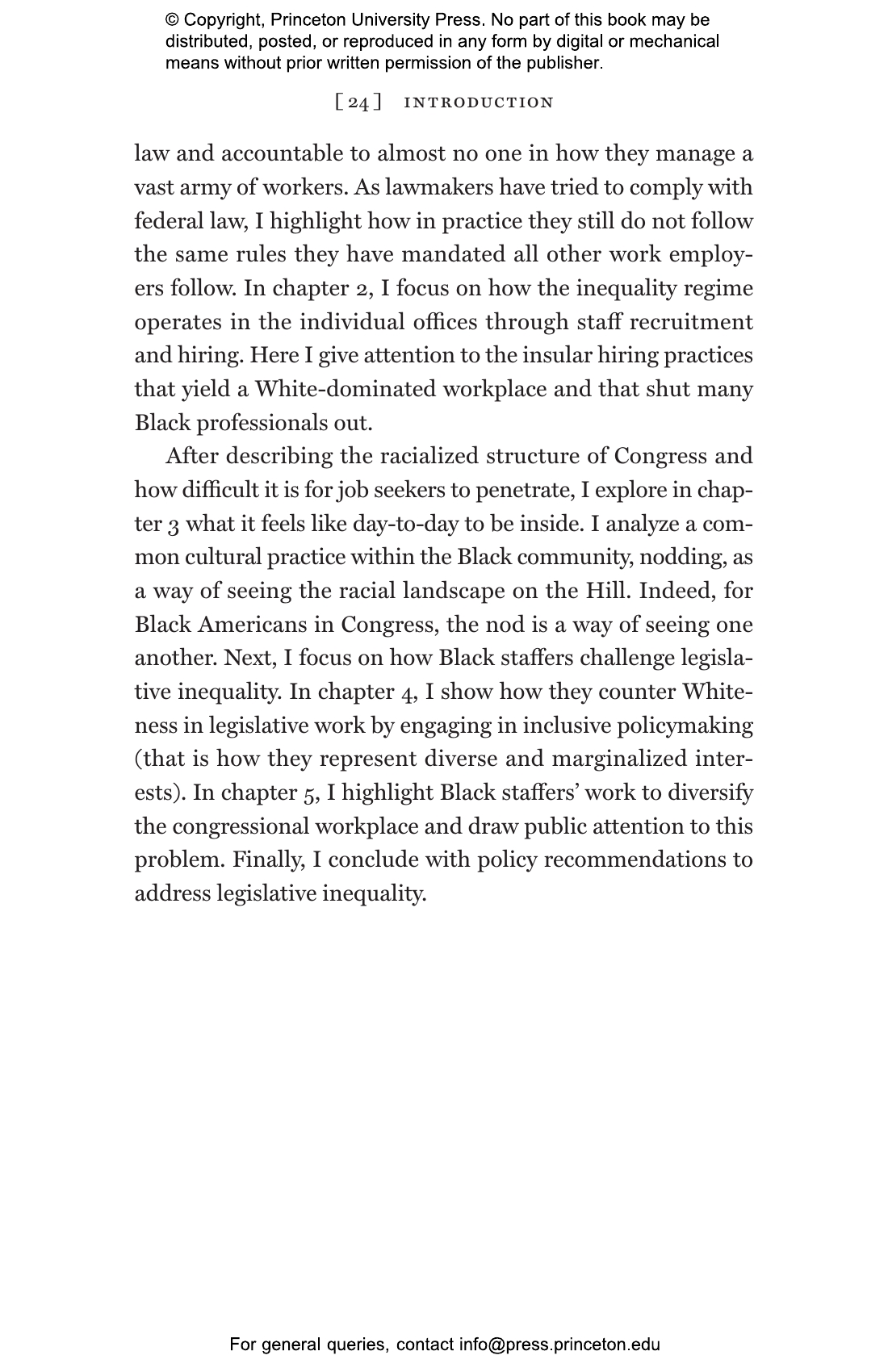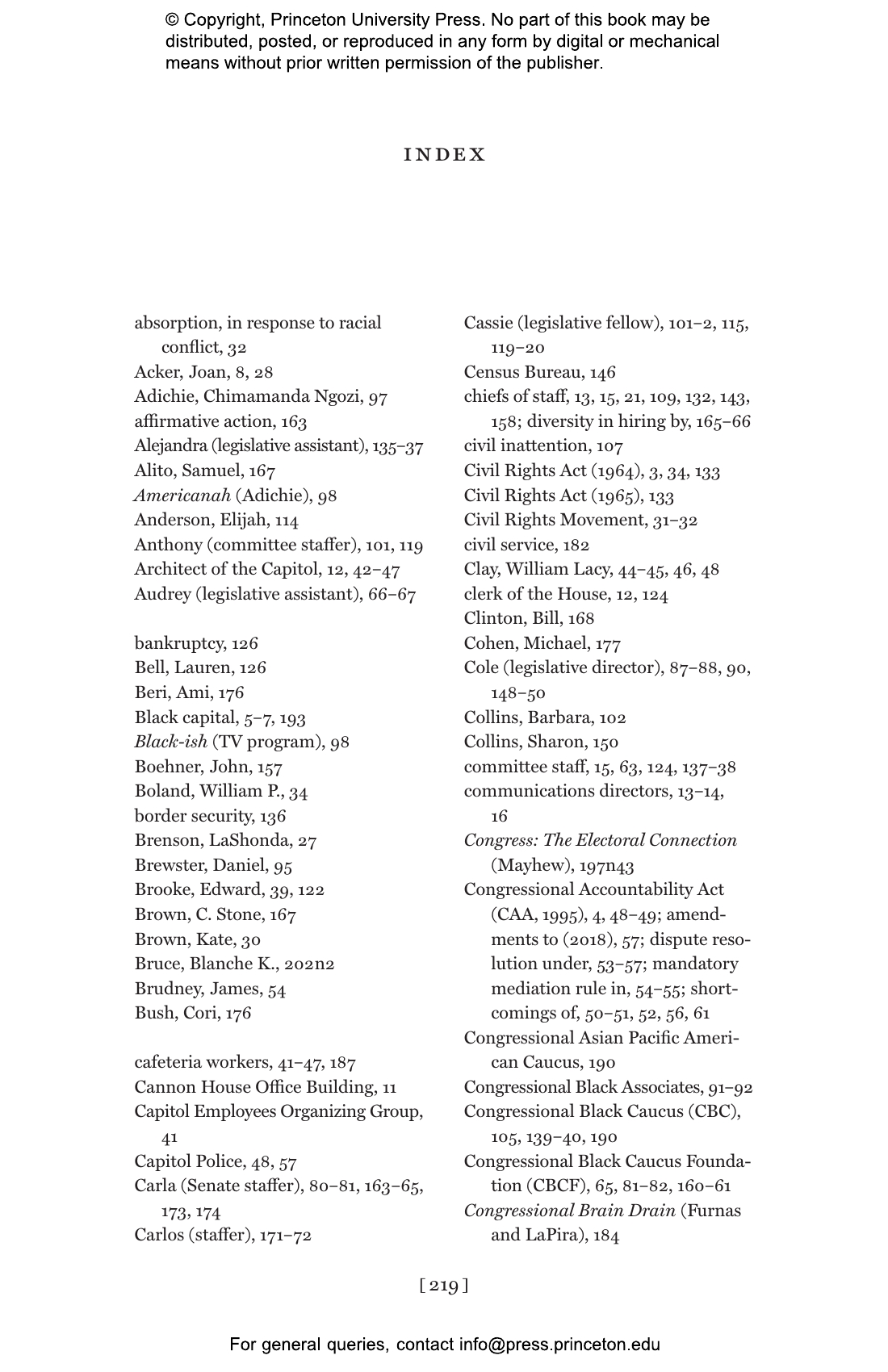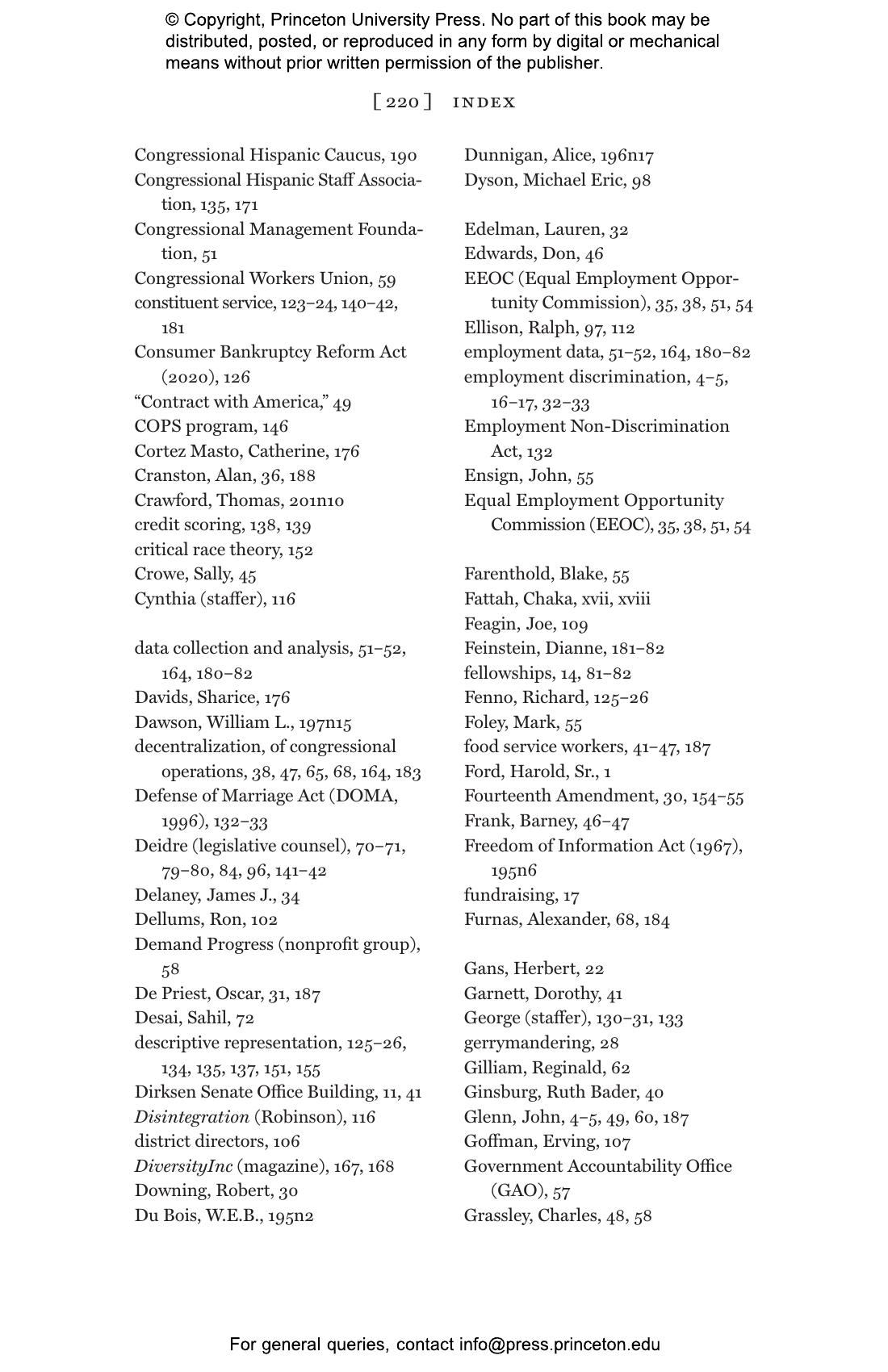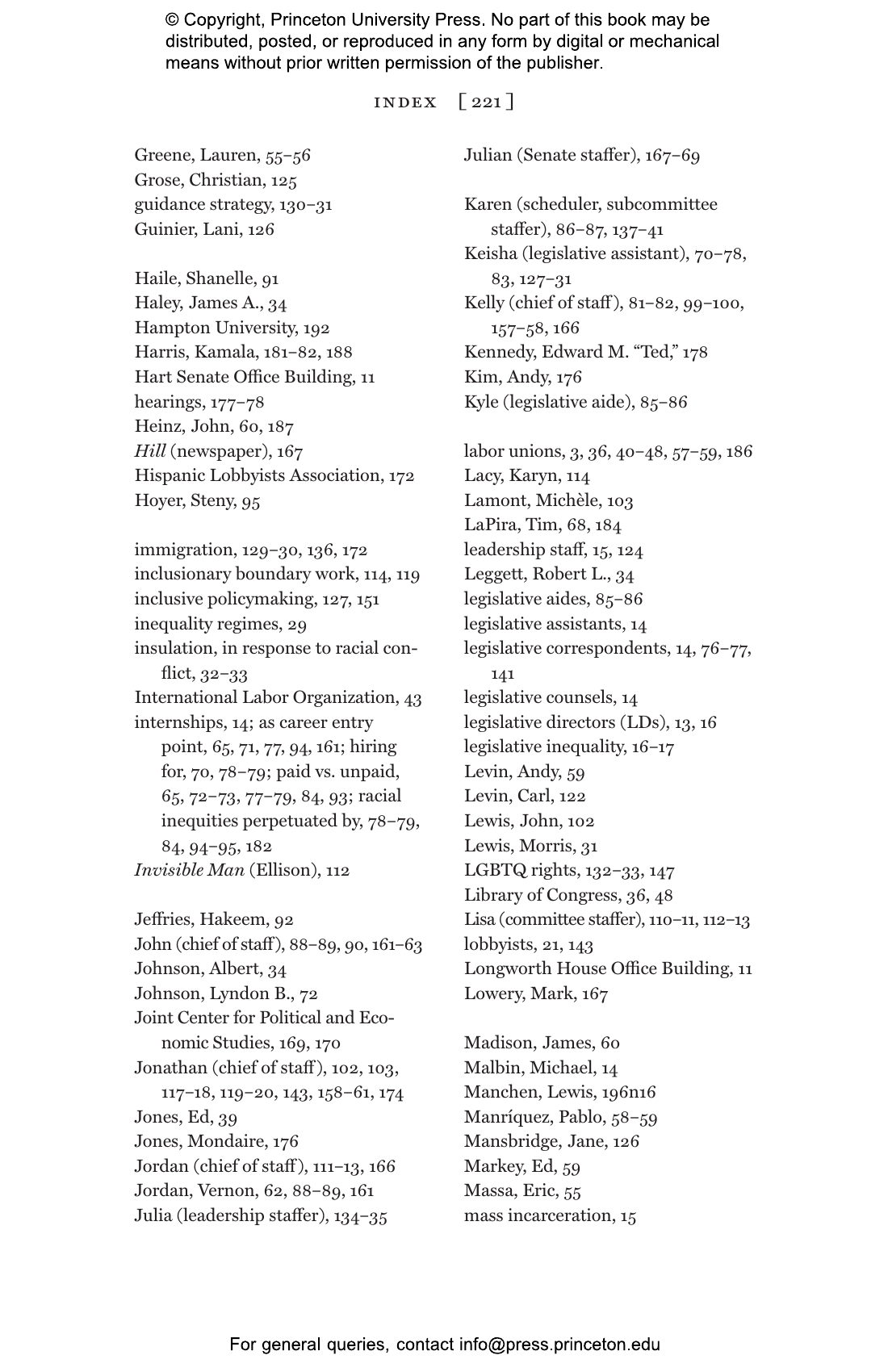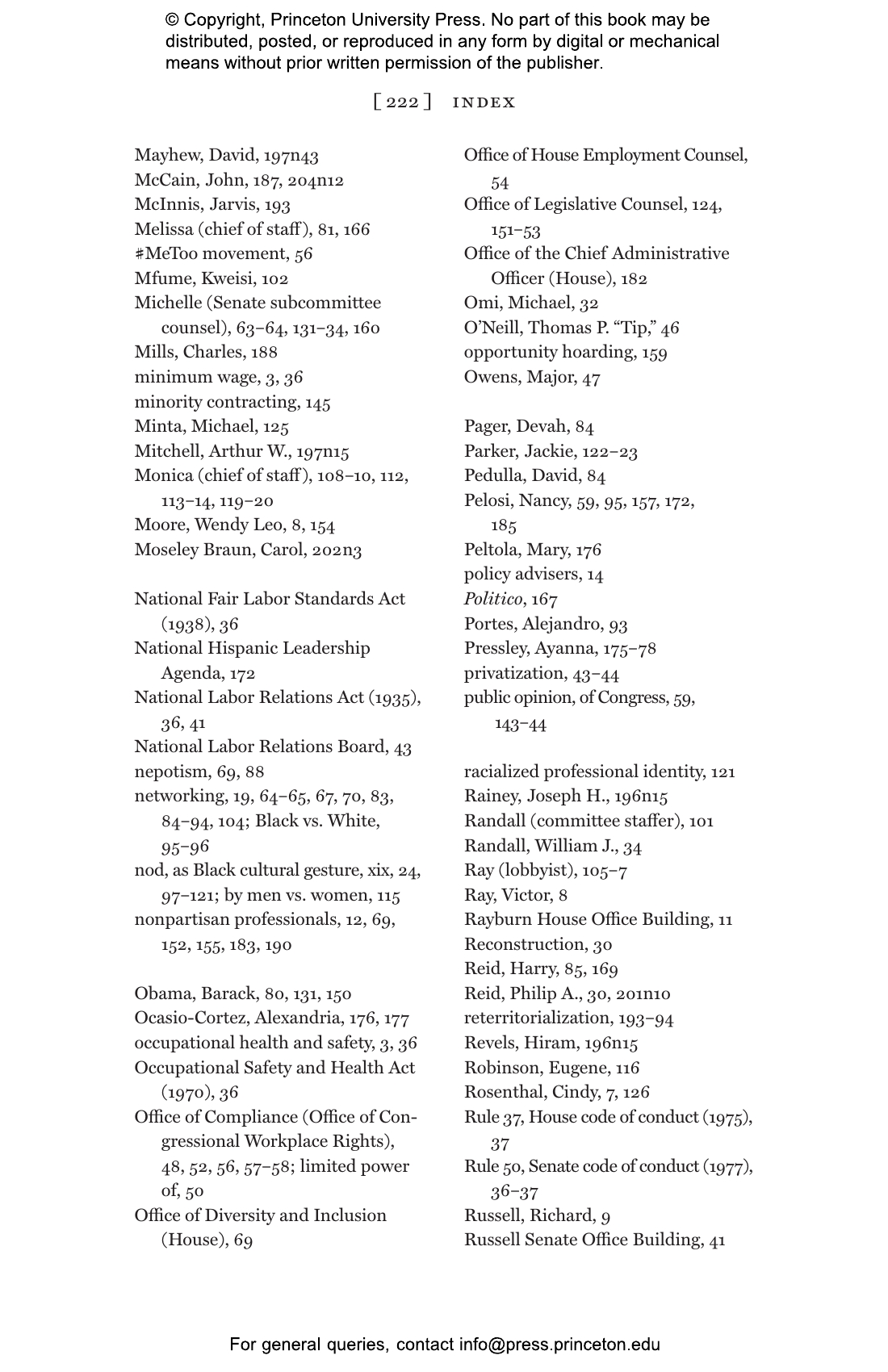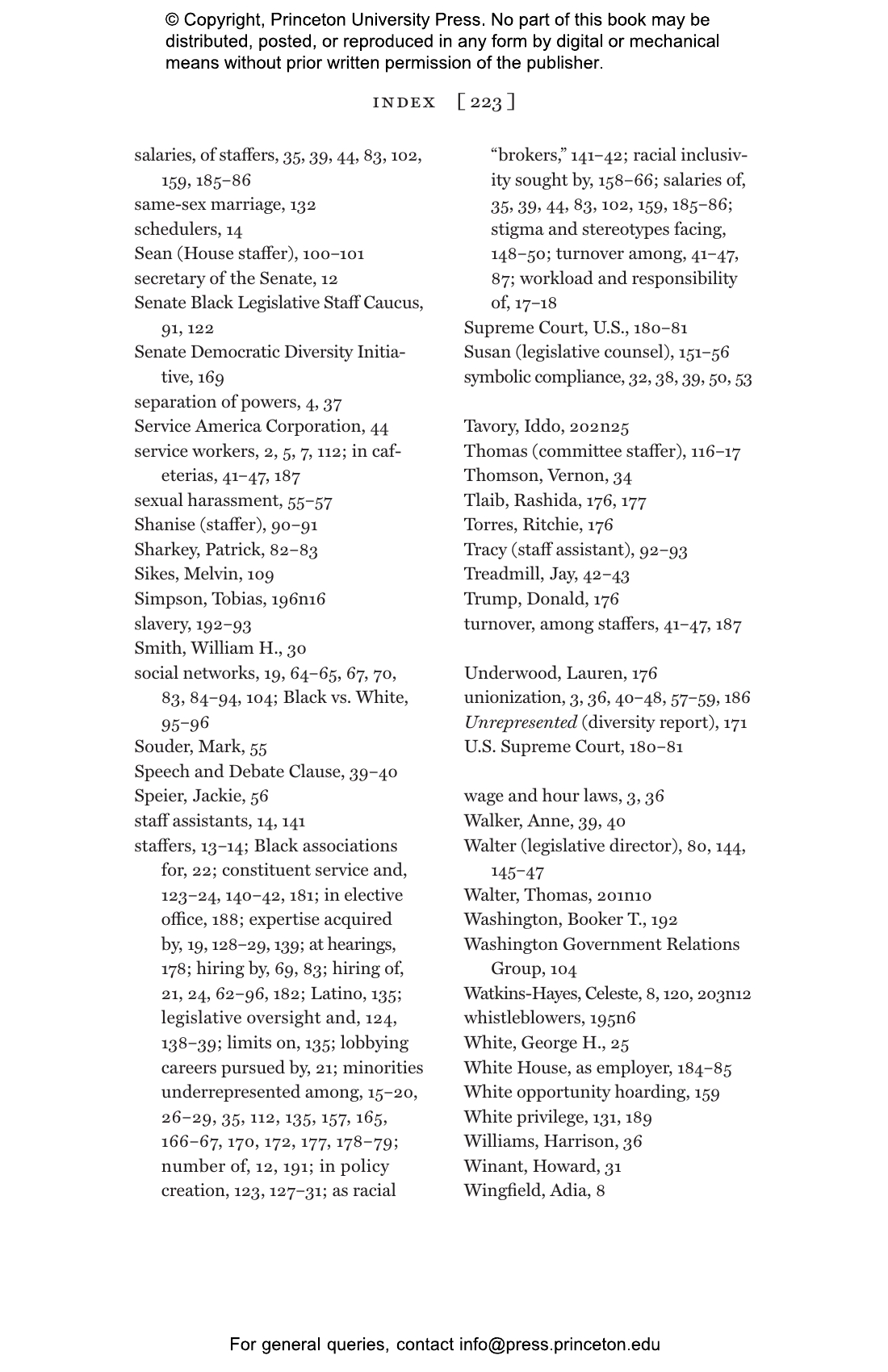Racism continues to infuse Congress’s daily practice of lawmaking and shape who obtains congressional employment. In this timely and provocative book, James Jones reveals how and why many who work in Congress call it the “Last Plantation.” He shows that even as the civil rights movement gained momentum in the 1960s and antidiscrimination laws were implemented across the nation, Congress remained exempt from federal workplace protections for decades. These exemptions institutionalized inequality in the congressional workplace well into the twenty-first century.
Combining groundbreaking research and compelling firsthand accounts from scores of congressional staffers, Jones uncovers the hidden dynamics of power, privilege, and resistance in Congress. He reveals how failures of racial representation among congressional staffers reverberate throughout the American political system and demonstrates how the absence of diverse perspectives hampers the creation of just legislation. Centering the experiences of Black workers within this complex landscape, he provides valuable insights into the problems they face, the barriers that hinder their progress, and the ways they contest entrenched inequality.
A must-read for anyone concerned about social justice and the future of our democracy, The Last Plantation exposes the mechanisms that perpetuate racial inequality in the halls of Congress and challenges us to confront and transform this unequal workplace that shapes our politics and society.
James R. Jones is assistant professor of Africana studies and sociology and director of the Center for Politics and Race in America at Rutgers University, Newark.
"A study that denizens of the Beltway should take seriously — precisely because it couldn’t be written by political scientists, policy wonks or journalists."—Michael Schaffer, POLITICO
"The Last Plantation holds crossover appeal for anyone interested in how congressional staffers — whose names never make it onto legislation — play an important role in our democratic system. . . . Jones draws upon his experience and the valuable networks he developed during his time as a congressional intern to write what I think will become the definitive book on how race and racism shape the congressional workplace."—Victor Ray, The Emancipator
"Enlightening, insightful, and eloquent. . . . A timely contribution to understandings of persistent racism in American politics."—Choice
“An intrepid, revelatory account of how inequality is foundational to the very seat of US democracy. With impeccable research and bold insight, Jones brilliantly details the enduring legacy of racism at the highest level of government, and illuminates the poignant experiences of Black congressional staff, who heroically strive to build an American democracy true to its ideals. The Last Plantation is absolutely essential—the one book you must read on the state and stakes of Congress.”—Alondra Nelson, Institute for Advanced Study
“This is a book unlike any other on Black politics. Offering an unprecedented account of Black congressional staffers and service workers, Jones explores the many manifestations of agency among Black workers while analyzing how these workplace dynamics impact the democratic process of lawmaking. Deeply researched and profoundly important, The Last Plantation is a critical addition to the scholarship on Black political change.”—Keeanga-Yamahtta Taylor, author of Race for Profit: How Banks and the Real Estate Industry Undermined Black Homeownership
“In The Last Plantation, Jones brilliantly unveils the inner workings of one of the world’s most influential institutions—the US Congress. Drawing on rich ethnographic data, Jones maps the everyday politics and practices that significantly shape the experiences of Black congressional workers. Jones presents a daring and theoretically compelling analysis of the US Congress as an inequality regime.”—Celeste Watkins-Hayes, Jean E. Fairfax Collegiate Professor of Public Policy and Sociology, University of Michigan
“James Jones does the important work of shedding light on the failures of Congress—in the past and still today—to be the house for all Americans. Ensuring Congress members and congressional staff look like America, ensuring Black Americans have every opportunity to participate in and lead in this democracy, and ensuring workers in the Capitol are adequately compensated and respected—from interns to chiefs of staff, from committee staff to those who keep the institution running every day—are goals that are both vital to equity and are also at the very core of our representative democracy. The work of Jones and others has inspired and informed significant reforms—including the establishment of an Office of Diversity and Inclusion, the payment of interns, congressional workforce collective bargaining, and new trainings for Congress members and managers—but The Last Plantation makes clear that there is far more work to be done.”—Congressman Derek Kilmer
“Jones meticulously weaves together data and a compelling argument to explain how and why Congress remains so segregated. The Last Plantation is aptly named to describe the insidious nature of White supremacy that impacts the daily lives of Black staffers and every aspect of American politics.”—Nadia E. Brown, author of Sisters in the Statehouse: Black Women and Legislative Decision Making



